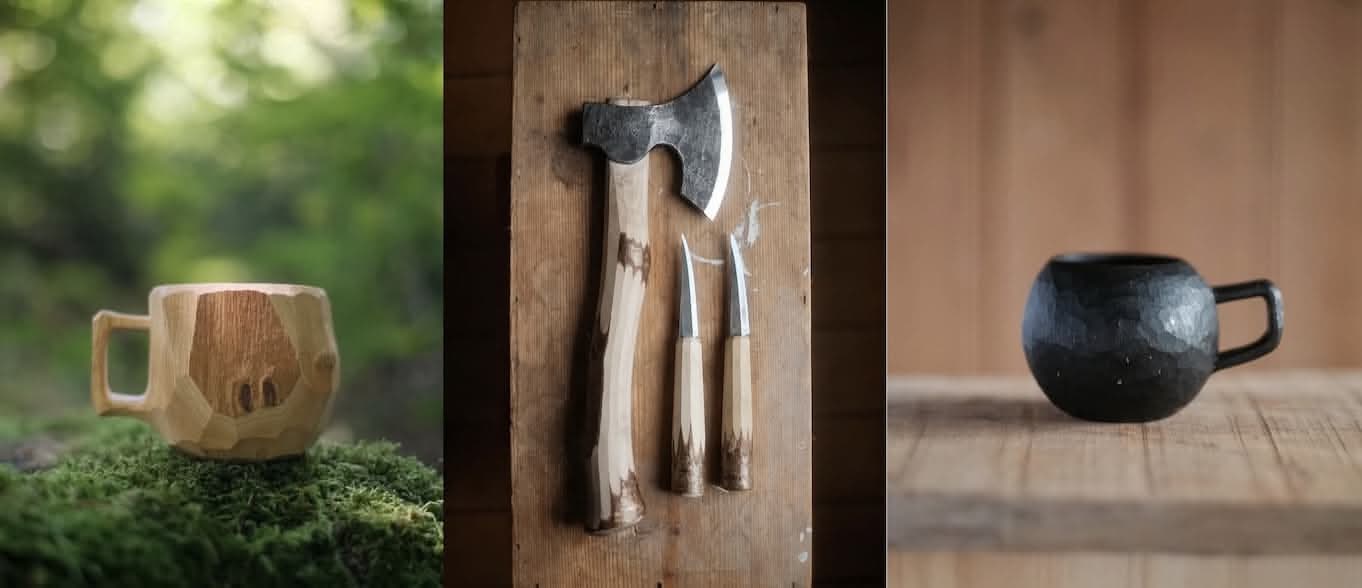I'll quit my job and buy a farm
You've heard the words in that title before.
You've probably said them yourself, when your day to day job became so absurd that you couldn’t even tell what it is that you do there.
Details shift; maybe you wanted to open a bar and talk to people face to face, hear their problems and make them feel listened. Or maybe you wanted to build a house with your bare hands or build furniture out of logs or become a blacksmith, pick up an old craft...
The same quiet hunger lies in so many of us. The need to feel some grass beneath our feet, breathe in some hay dust, soak up the heat of a sunrise through the thin skin of our eyelids.
The thing is, details don't matter. I’m not stuck at a job, I'm an independent macOS app developer. And I don't think I’ll have the money to buy a farm anytime soon, but I do have a few square meters of grass in front of the house I’m renting. Yet I feel the same hunger.
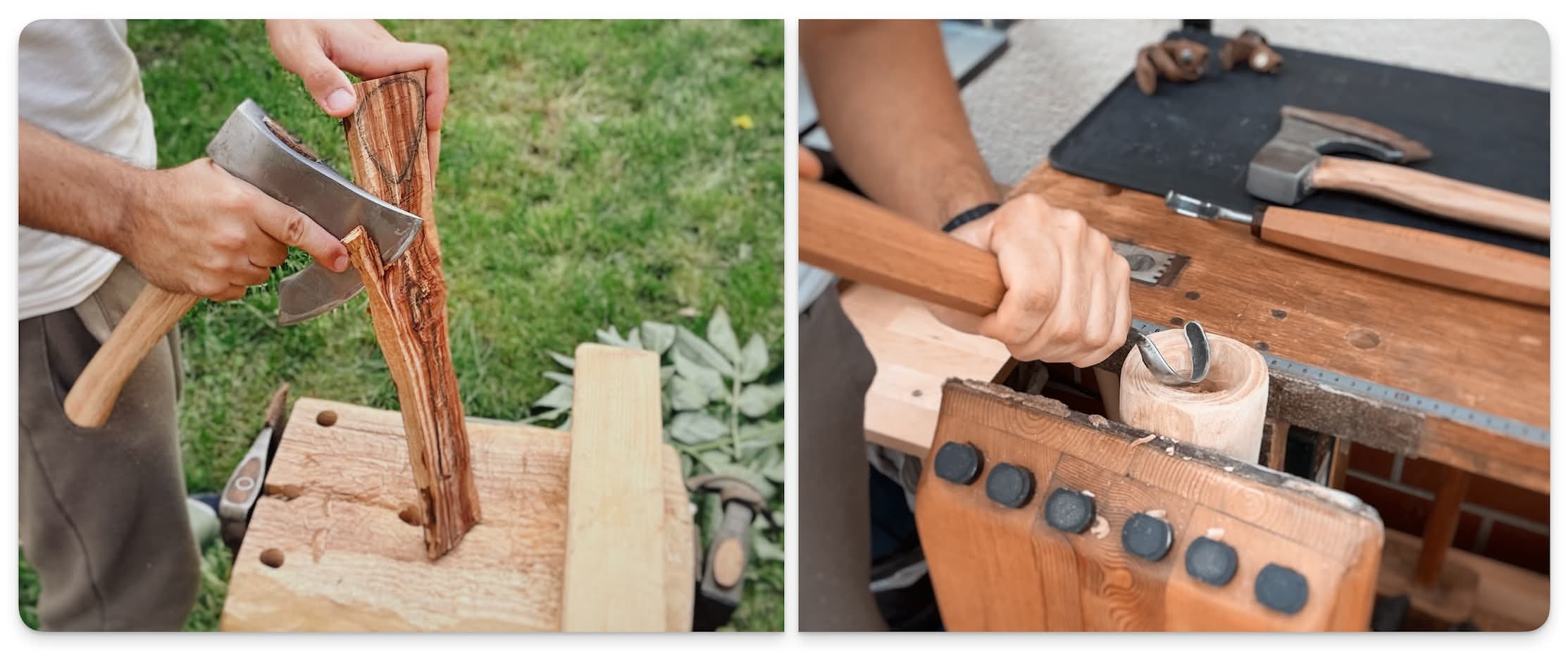
I started carving spoons and coffee cups out of green wood, at first just to take a break from the hectic feeling of always being online, later it slowly became more than that.
I don't see myself endlessly clacking at my keyboard for the next 30 years. So in this past year I've been cluelessly trying to build a wood carving business, and being struck by how hard all this real world work can be after living so much of my life online.
For the impatient people, here's where my wood carvings are:
# What's wrong with just selling macOS apps?
Not much really. It's a well paying business, fulfilling if you like using and abusing macOS, writing Swift and SwiftUI all day, doing some reverse engineering of system frameworks here and there.
Sure, there's a lot of fighting with Apple as well, especially if you take the App Store route, but also just because you are forced to use Xcode, send your apps to be notarized by them before publishing even independently, dealing with system bugs and deprecations every year.
The people complaining about your apps can be a source of stress too, you're shielded from that feedback when you are an employee at a larger company.
But overall, it beats everything I've done so far in my 12 years of being a software engineer.
It's just a bit lonely.
And it's weird seeing those words form inside my mind. I've always been a person that likes being alone with my work, I could occupy myself with programming tasks for 14 hours, sleep happily then wake up and start over.
But working by yourself, for yourself, is different. When I was employed in a real physical office, I would have coffee and genuine conversation with my colleagues, we could play some table tenis and vent about the things that we found annoying or absurd about our job.
Even when I was working remotely, I at least had colleagues as passionate as I was about the things we were working on, we could share learnings and find meaning in what we did. Or at least complain and bond over how meaningless our job is.
I have none of that now.
My pains are mine only, the things I learn become so deeply specific that in the end I have no one to share them with and the number of people complaining outweigh the people thanking me about 100-to-1 no matter how good of a job I do.
My parents and friends have no idea what it is that I do so I can’t talk to them about what I spend most of my waking time on without boring them to death.
Sure the money keeps coming, but even the rut of having to manage a business, navigating the ever changing tax laws and publishing restrictions, takes all the joy out of seeing that there are people happy to pay for my hard work.
There's only so much complaining my wife can handle before I start sounding like a broken record. So what do I do?
# Working with wood
I've written about some of this before in the following articles:
A few years ago I started making things out of wood: a chess board with magnets, a laptop bed table, a bookshelf. I did these mostly because I needed the things, but also because I needed a break from the virtual world. I noticed I like creating things, real things that I can feel, and especially that I can let others feel as well.
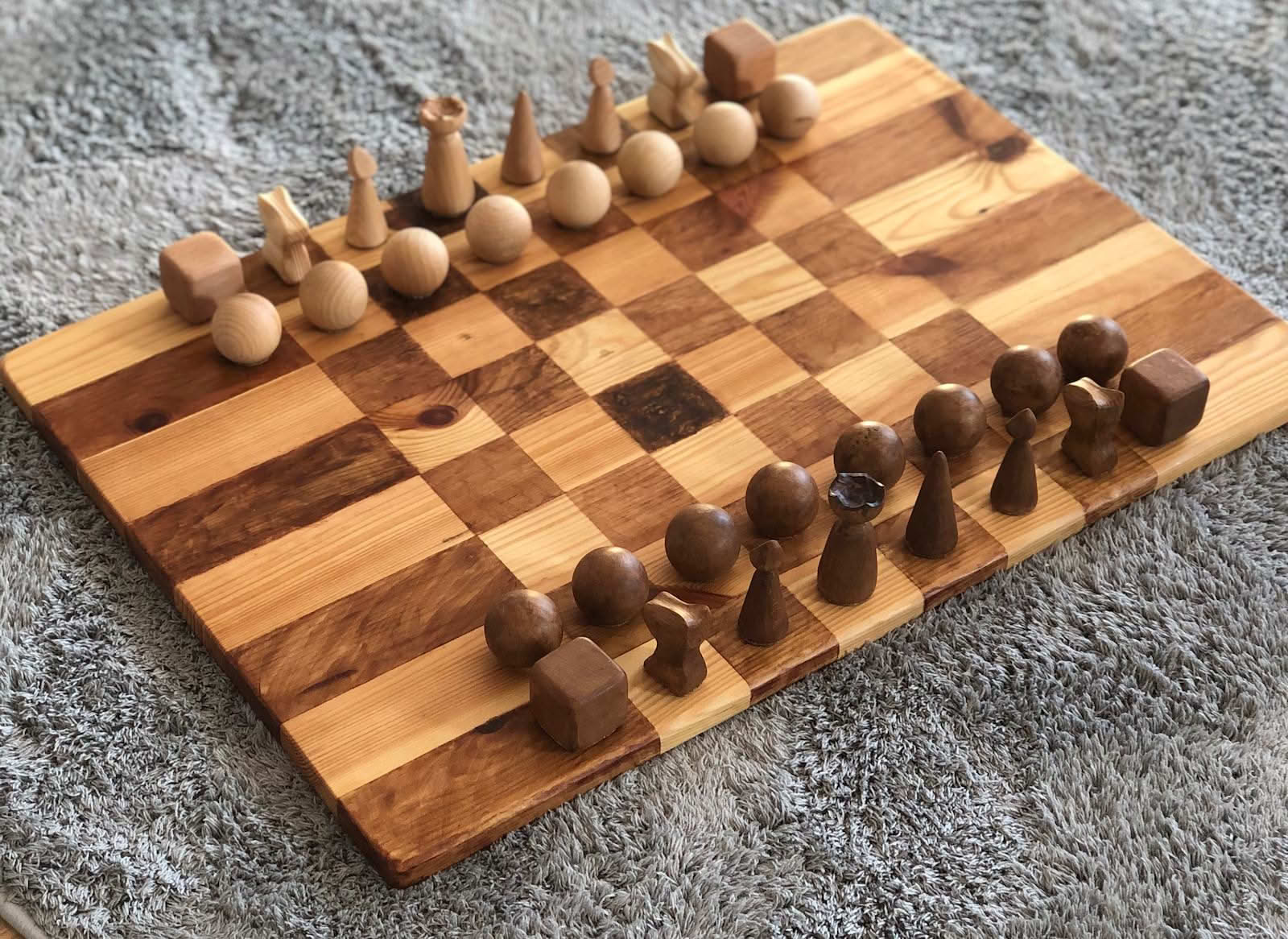

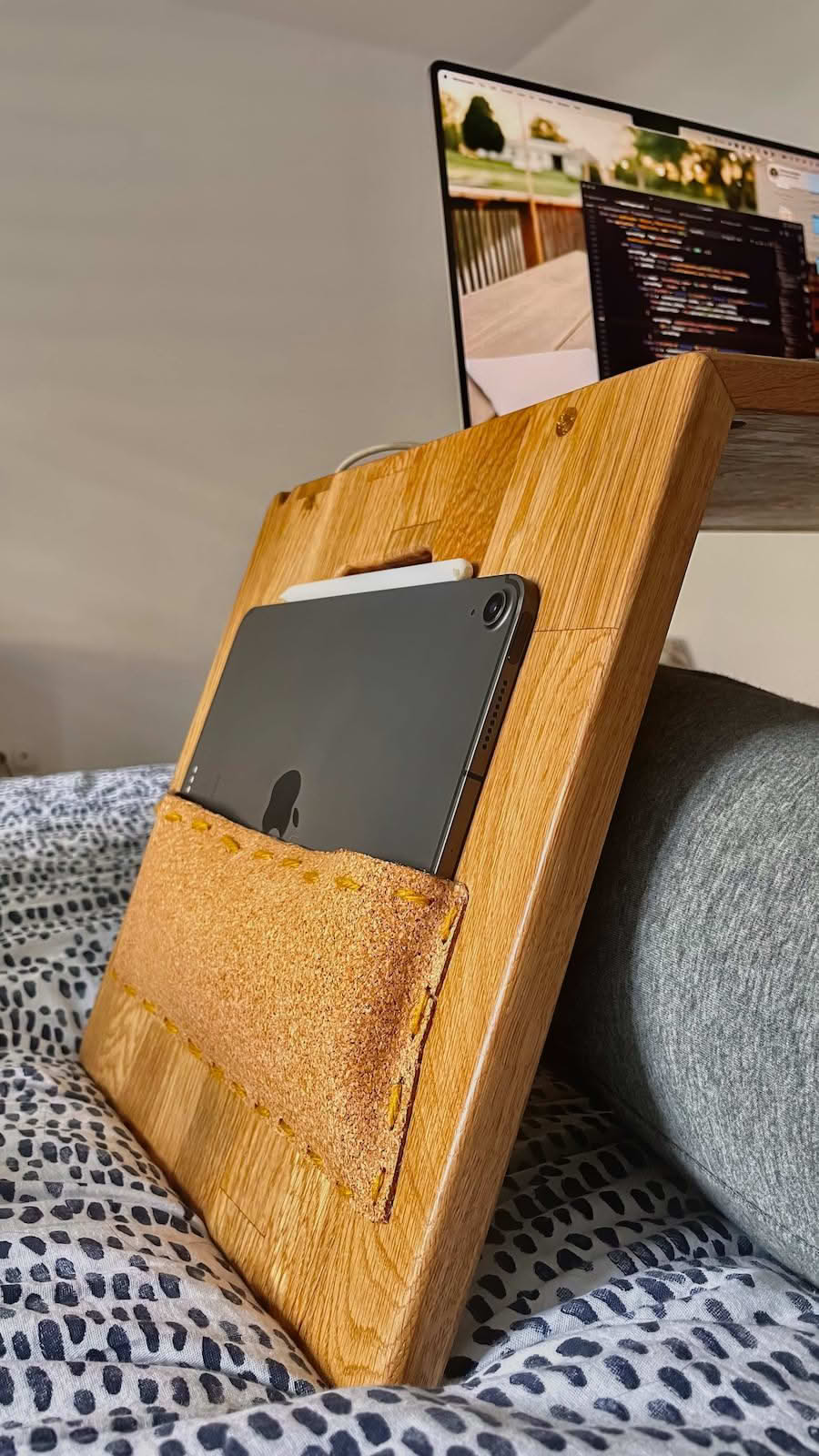
One lazy morning, after a walk with my dog, I finally got tired of splashing coffee on myself and being extra careful not to break the coffee cup because my dog ran after a cat and pulled me along with the leash. Yes, I'm that weird person that takes his home brewed coffee with him on morning walks.
So I thought, how hard could it be to make a wooden coffee cup that:
- has an internal geometry that doesn't spill out coffee
- can't be broken if dropped on the pavement
- I can easily pocket after finishing the coffee so that I have both my hands free
I had a thick branch from the apple tree that my father had to fell because of a storm, cut off a piece of it, and since I wasn't so experienced with scooping out large amounts of wood with hook knives, I just drilled a 30mm hole into its endgrain with a forstner bit.
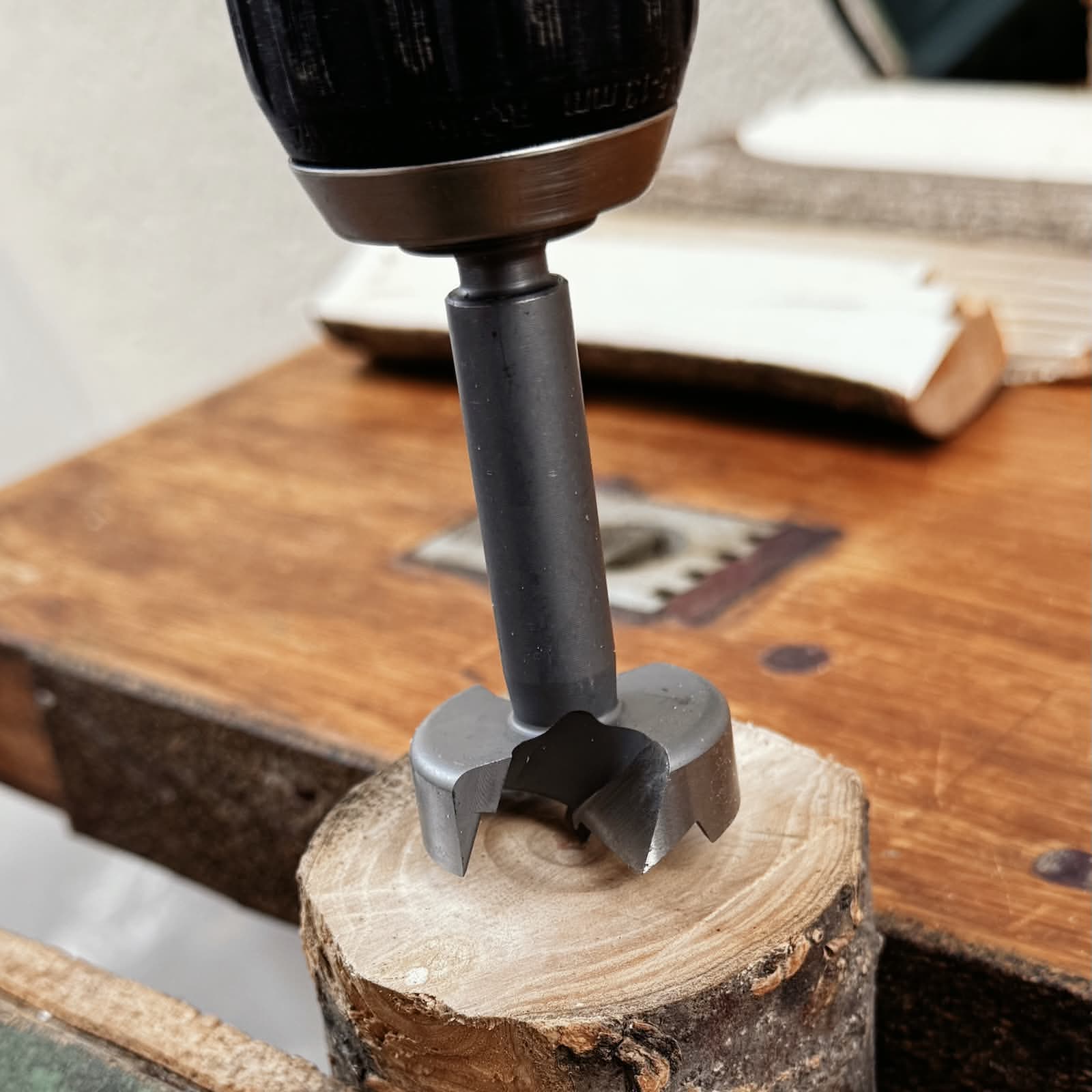
This got me a rough espresso cup blank in a few minutes.
To make it hold coffee without spilling, I carved facets on the interior walls with a hook knife. I then sanded the exterior smooth and finished it with tung oil and beeswax to make it waterproof.
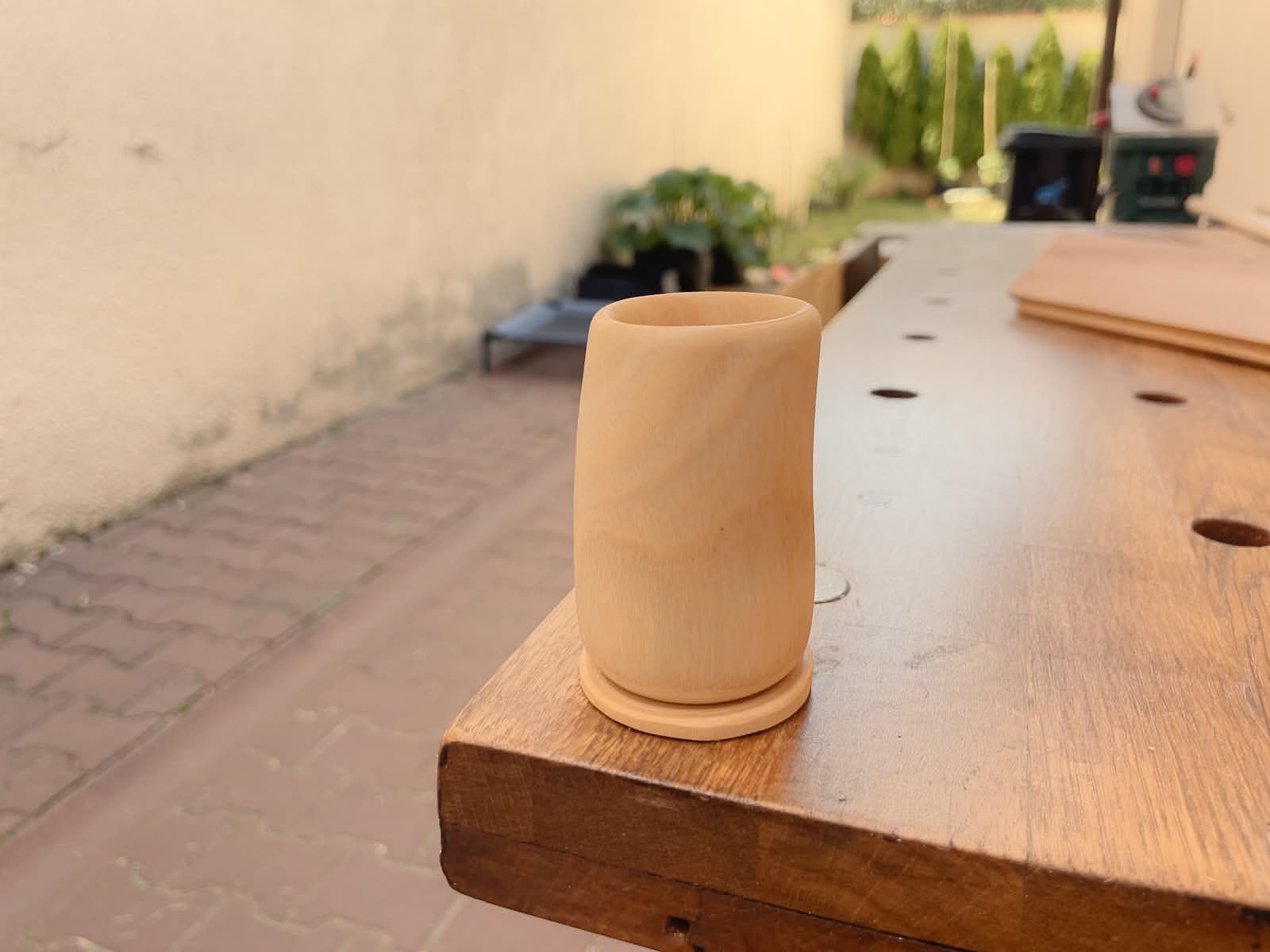
It was a small cup, it couldn't hold more than two shots of espresso, but it wasn't much work and I felt such a joy using it on my morning walks that I couldn't wait to share this with others.
That day, I stopped seeing working with wood as just a way to make things around the house. I thought "I could make these things for others! I can gift them to my friends, I could probably even sell them!"
Boy, was I naive.
# Selling things you can hold in your hand
I kept that idea in my head but didn't act on it because apps still needed my full attention.
In the meantime, I made more coffee cups, because I wanted to try different shapes, see how different woods look and behave, experiment with finishing oils and waxes and make some gifts for friends while I'm at it.
Here are some other cups I made in that time:
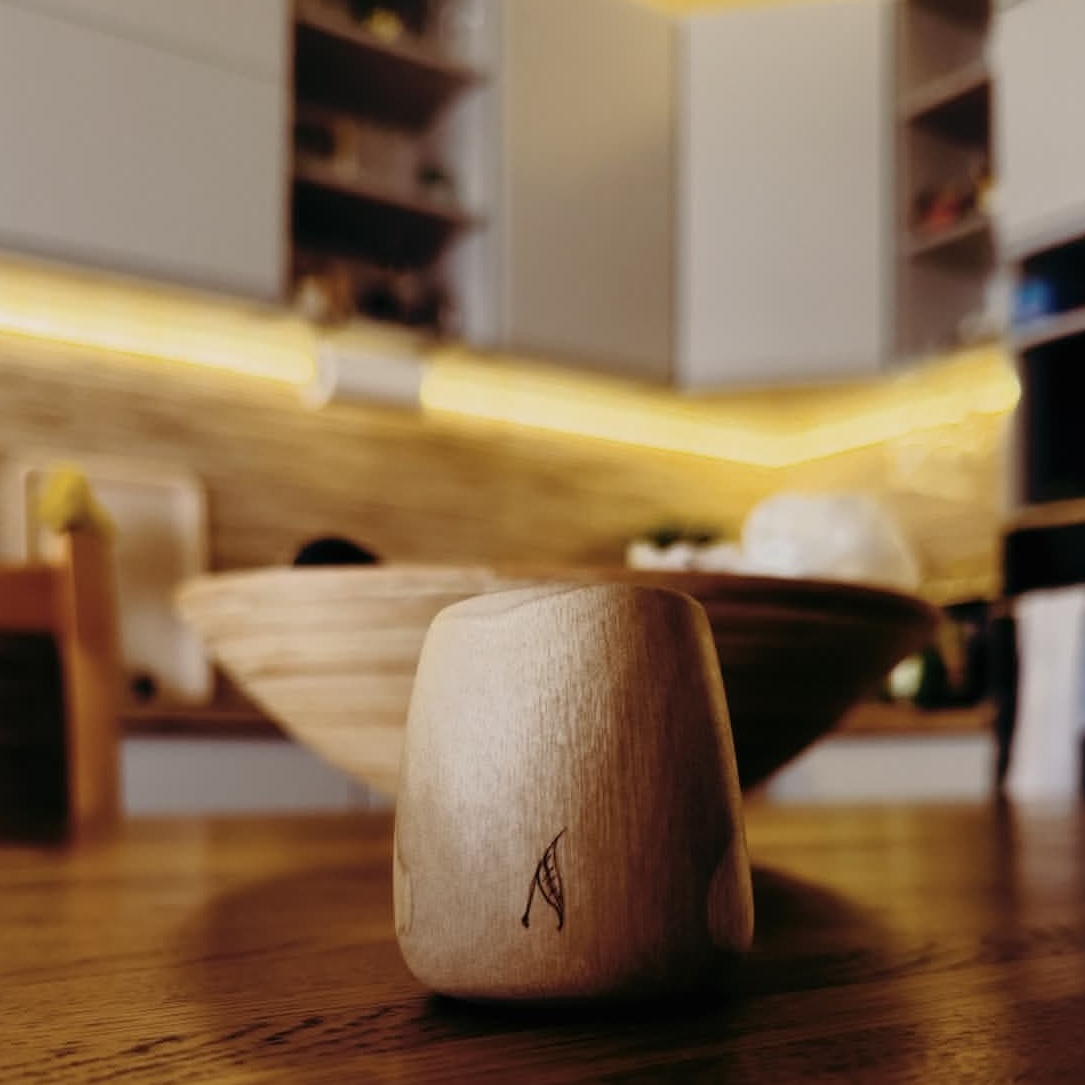
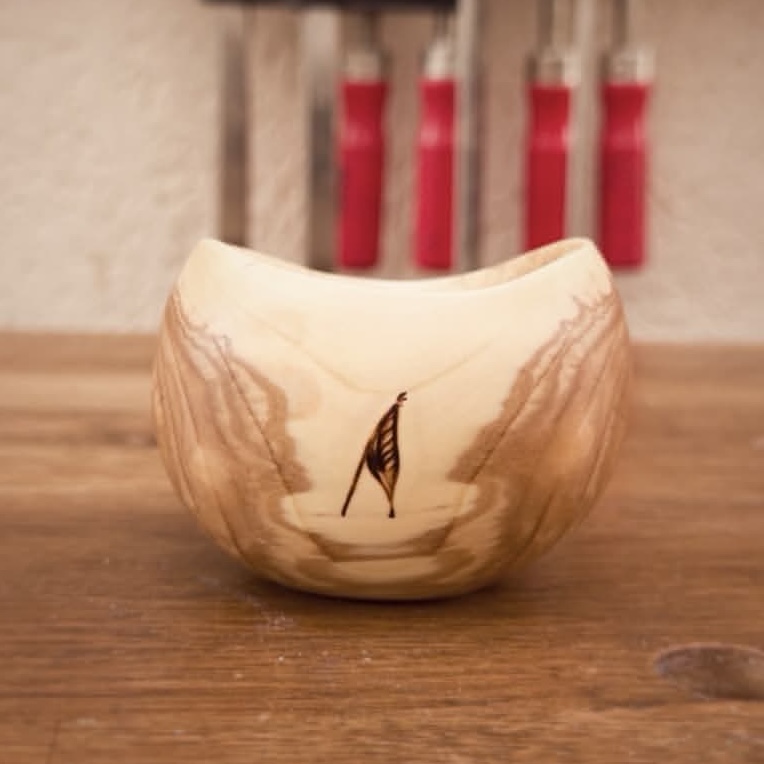
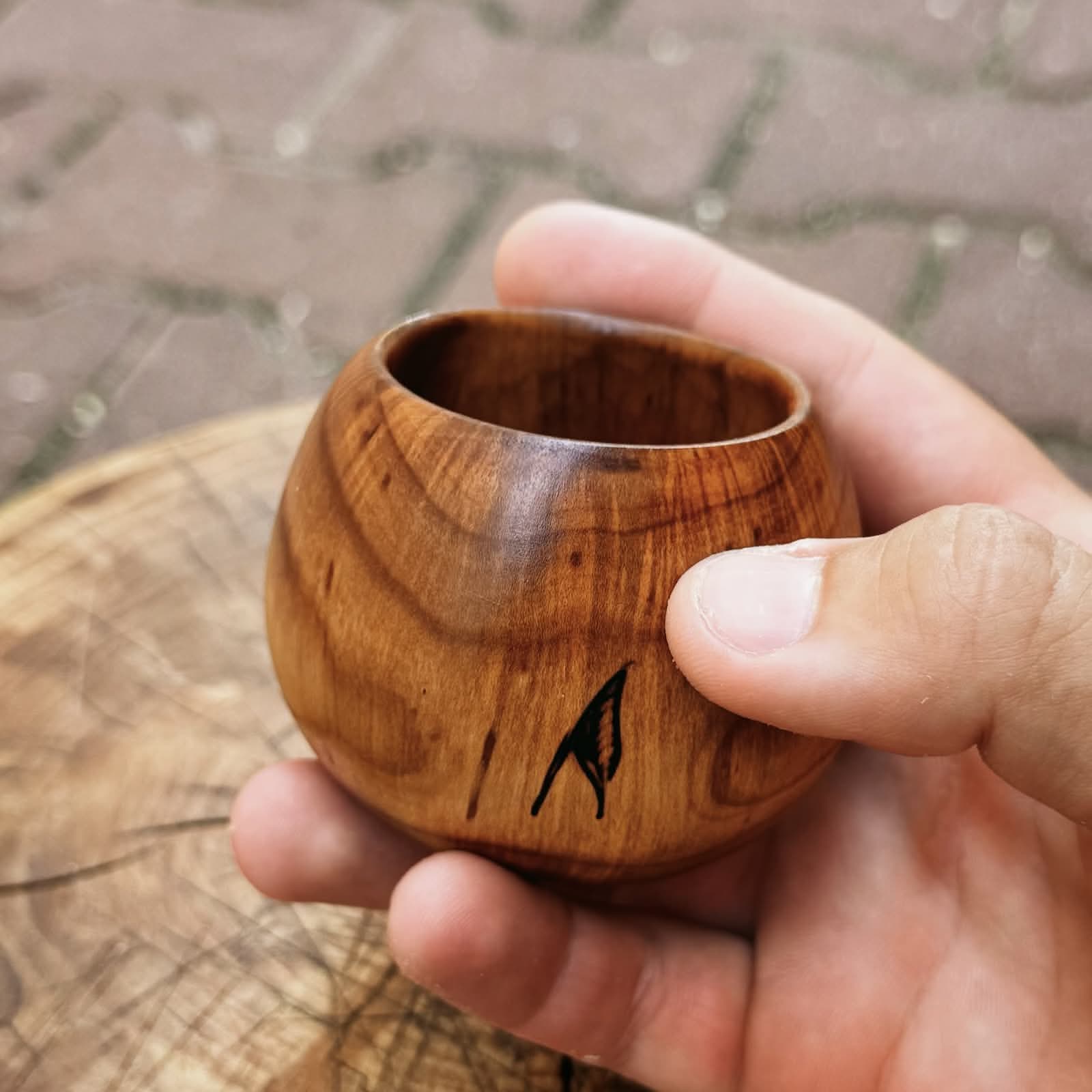
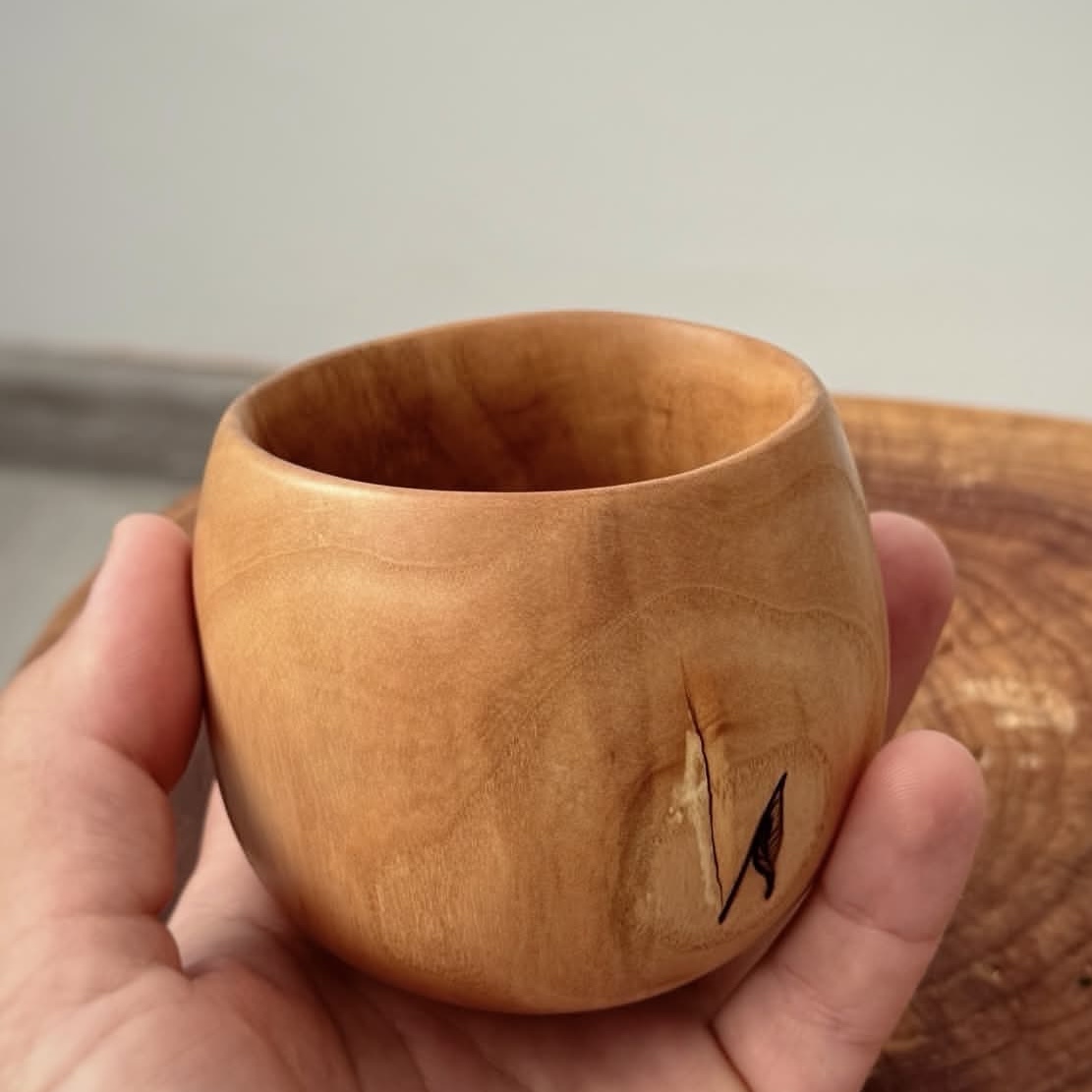
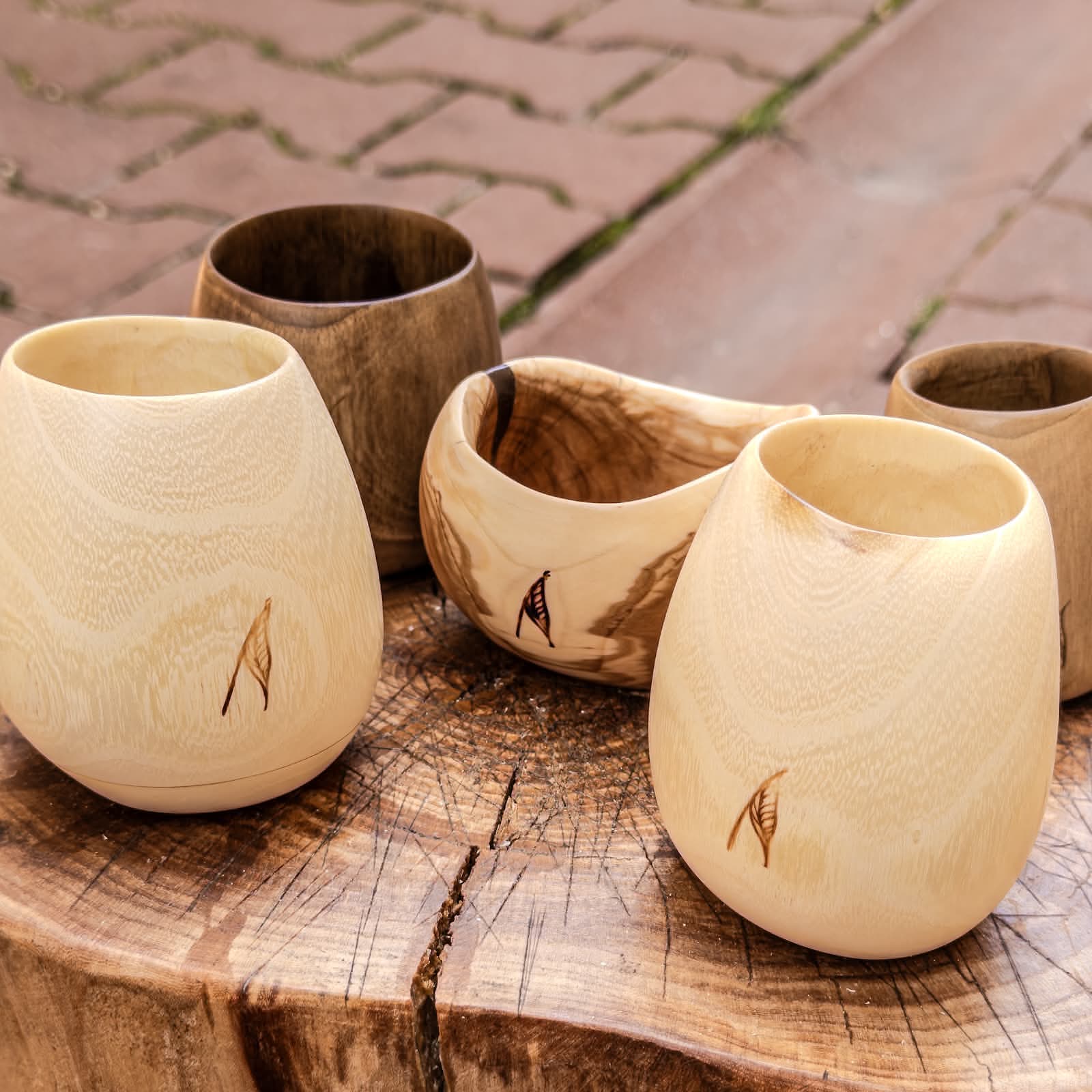
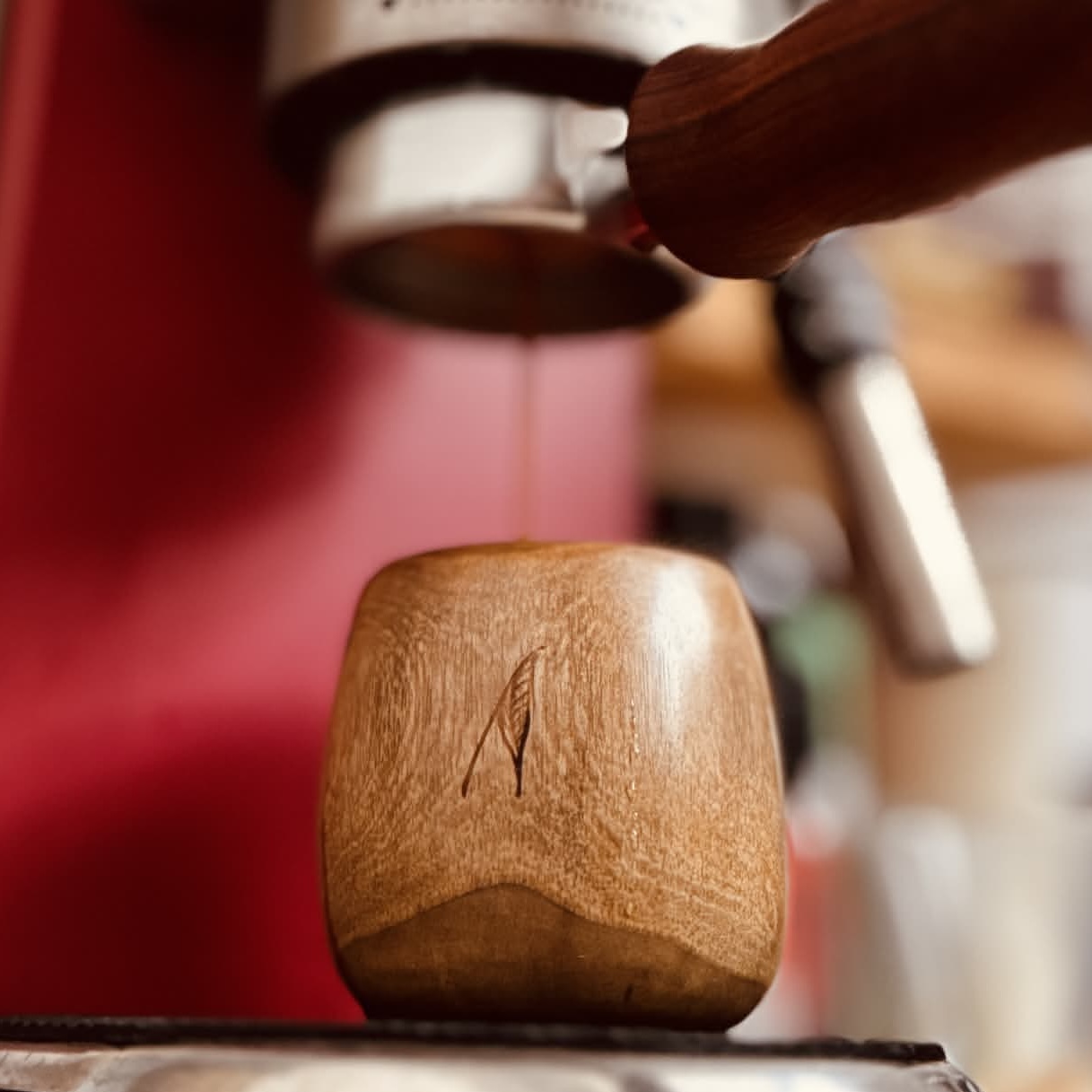
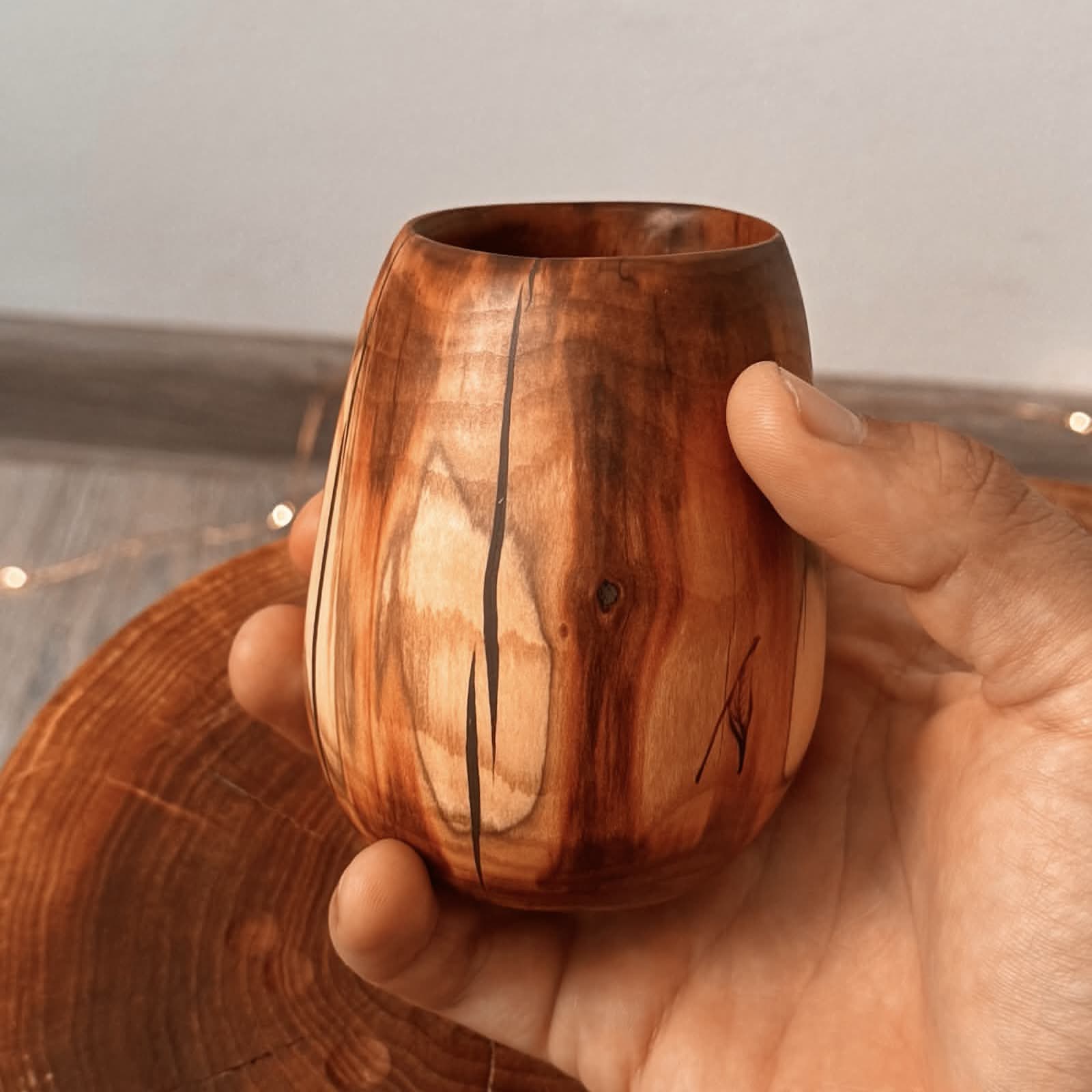
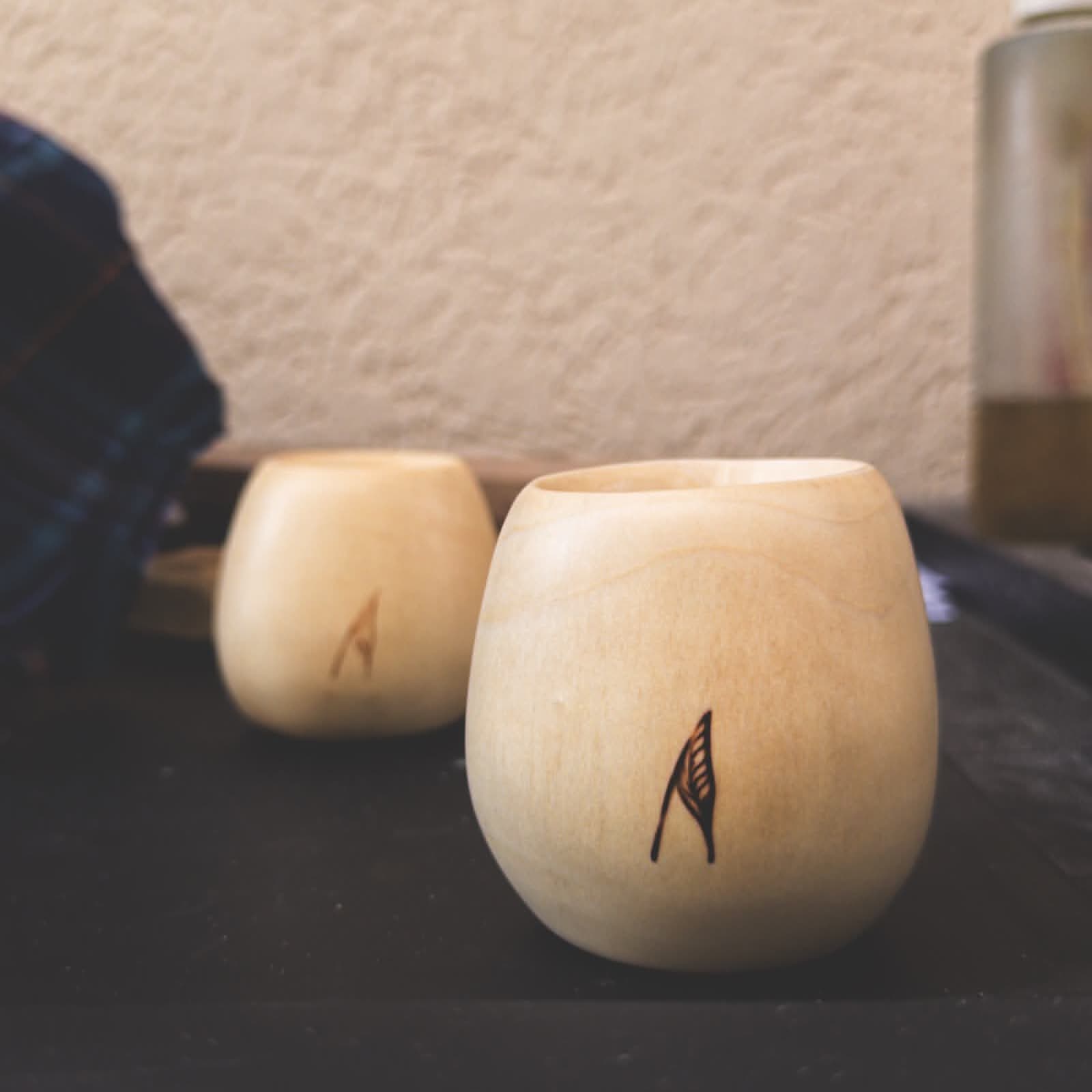
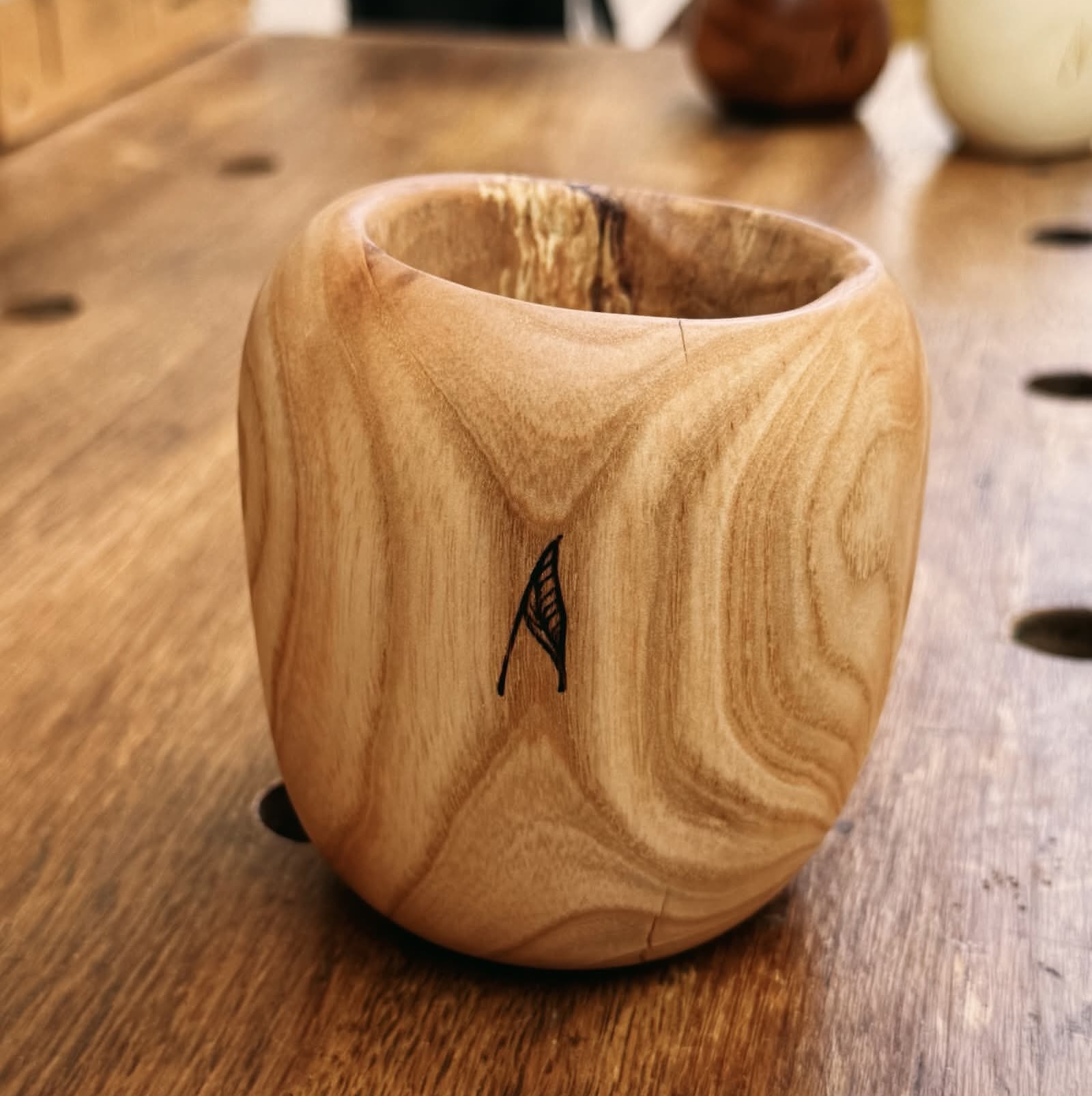
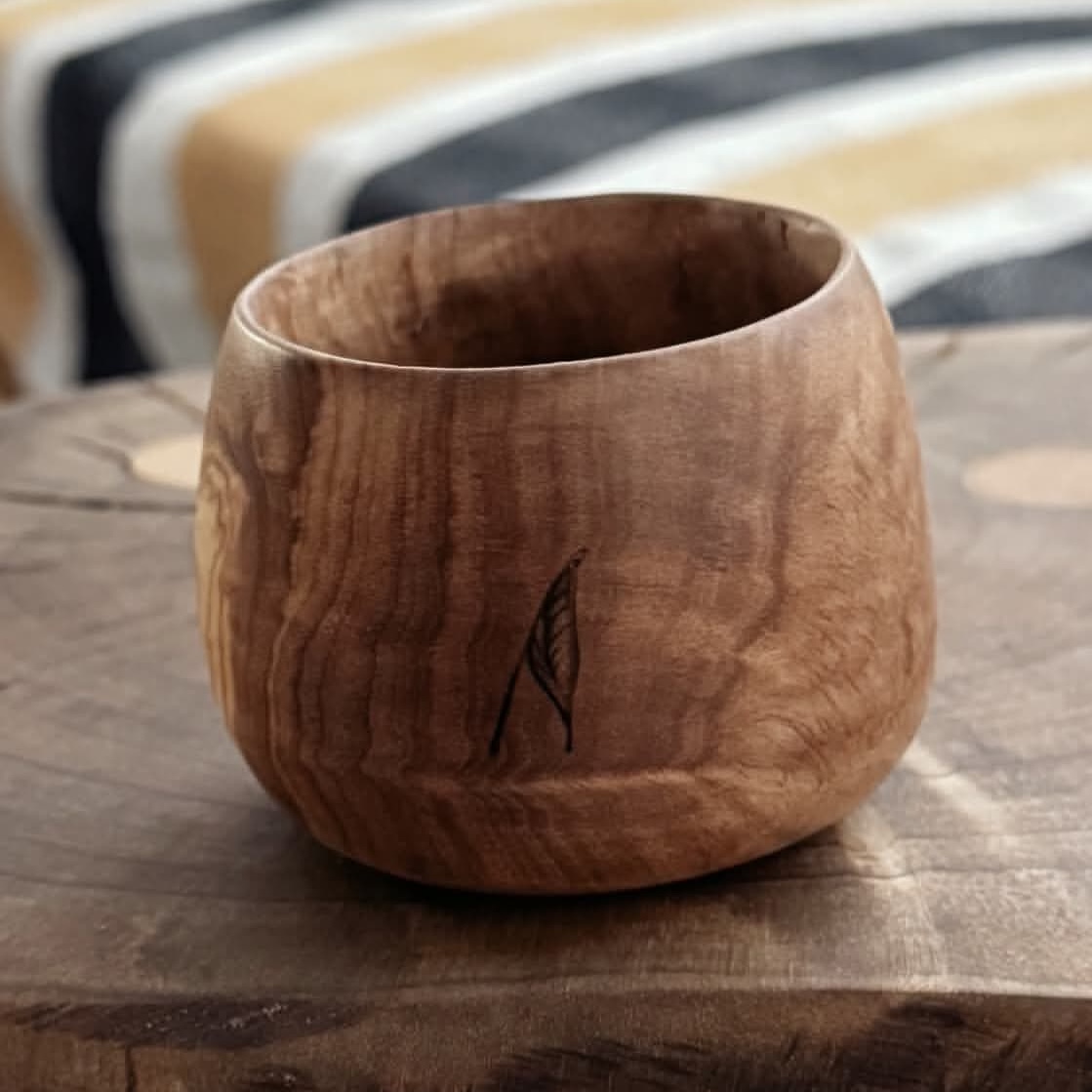
Spring came and warmed up my outdoor workshop enough for me to start carving again. App work lessened, so I thought I could put some effort into selling the things I'm creating.
I found myself with three ways to sell:
- showcasing my work in front of my house and sell it to whoever shows up (kind of illegal unfortunately)
- register for craft markets in my city and stand on my feet 3 days a week to sell them to tourists
- open an online shop
The first way was not really an option, the fines are pretty large if you get caught doing that.
The second, selling in person at markets, required:
- incorporating a company
- getting a Point of Sale device
- getting a cash register and learning how to operate it
- bid for a market spot and pay more than 100€ per day to be allowed there
- have a lot of stock available, I can't sell just a handful of products there
- ask for a much lower price than what I value my work for since I'll mostly be selling to Romanians looking for cheap trinkets
That sounded like way too much effort for something that I wasn't sure would even work.
I was left with the only option, opening an online shop. For that, there are a myriad of options: should I sell on Etsy, should I use that Squarespace coupon that every YouTuber advertises, should I write my own web shop since I come from a web developer career after all?
In the end I chose Shopify, which might seem the most expensive choice, but there are quite a few advantages to it:
- they offer 3 months of trial at
$1/month, which is huge if you want enough time to see if it's worth even trying to sell online - the selling fees are incredibly small compared to Etsy
- the integration with shipping providers and tax calculators is much better than Squarespace for my region
- I don't have to bother with debugging code, I can just be outside at my workbench
So I chose a visually clean theme, added my business details and opened this tiny web shop called Gospodăria lui Alin which basically translates to "Alin's homestead".
My idea with the name was that I want to make and sell things that I myself like to use around the house, kitchen and workshop.
Things like coffee cups, cooking spoons, salt shakers, butter knives, sharpening blocks etc.
I have to say I love Shopify! Adding products is a breeze, I can even do it from my phone right after the thing itself is done. Integrating with shipping carriers is as easy as installing a plugin. The UI is clean and functional, flexible but not overly complex.
It allowed me to skip all the physical selling pain points, but I was unknowingly diving right into the most painful of them all: how do I get people to view my work in the first place?
# Visibility
Getting your work in front of people online is harder than you might think. Sure, you made a website, it's now available for everyone on Earth, but how come no one sees it?
Well, it's not like there's an online plaza where people stroll around and stumble upon new websites. Either people search for your website specifically, or an algorithm decides to push it in front of their eyes on the social platform of the moment.
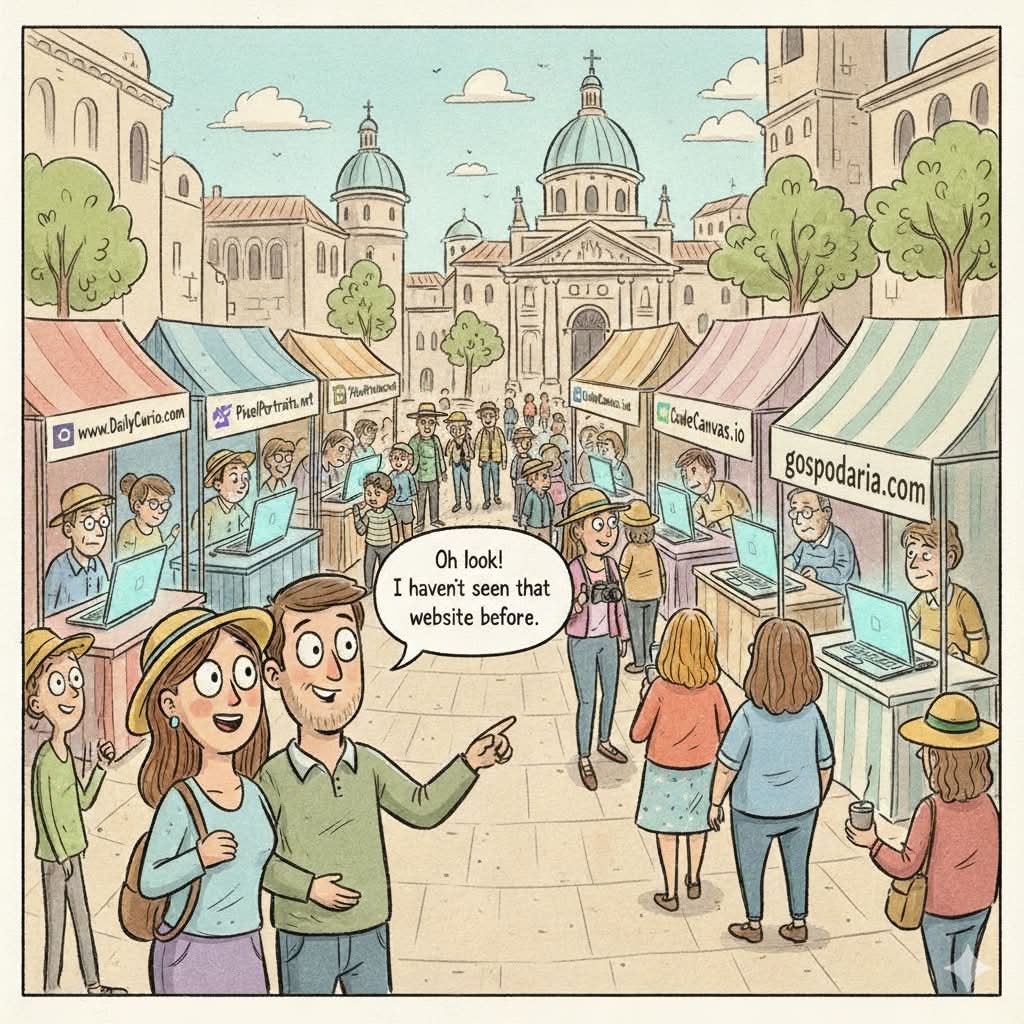
That I think is the largest and most important difference between online and physical selling: people find you in a city market by chance, but online, you have to find the people and convince them to come to you
I started with a local only presence at first, because I don't yet have the energy to figure out global shipping and taxes. I set my prices a bit lower than what I'd want so that Romanian people wouldn't scrunch their nose at them, went through all the SEO best practices, started an Instagram page.
After months of working on Instagram reels and photos, handing out business cards, doing some paid ads and asking friends to spread the word, I got nothing. Zero online sales, close to zero visitors.
All I got was a shadow ban on Instagram because I changed my username to fix a typo. I had to start over on my personal account.
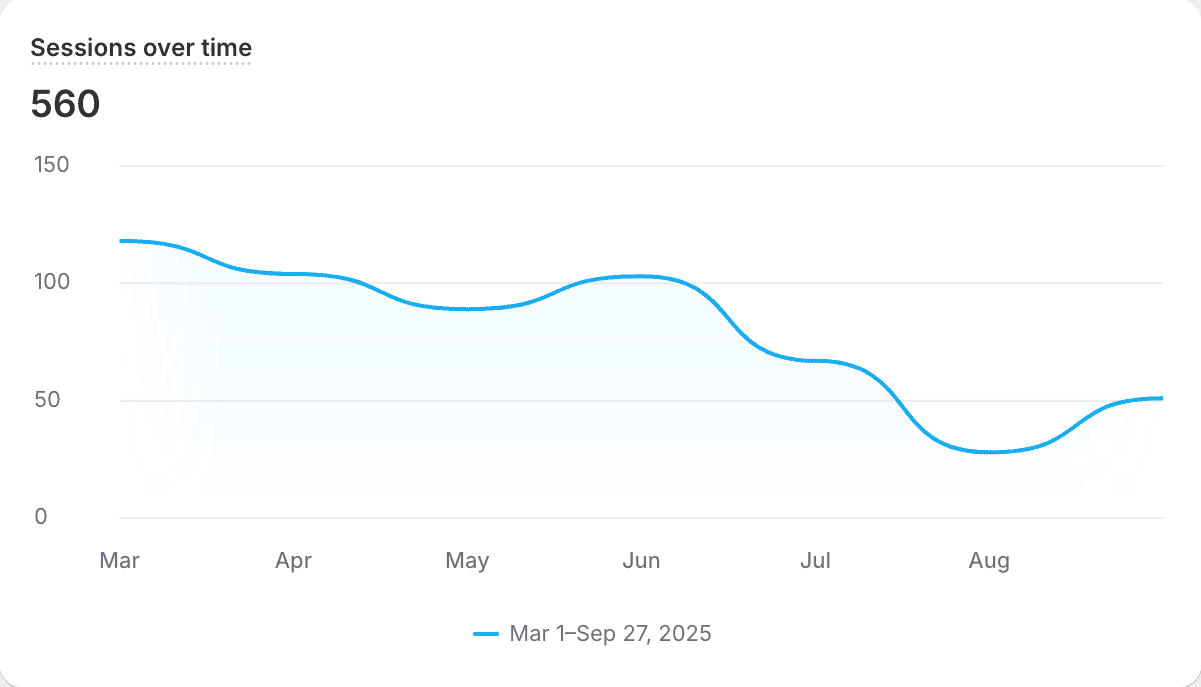
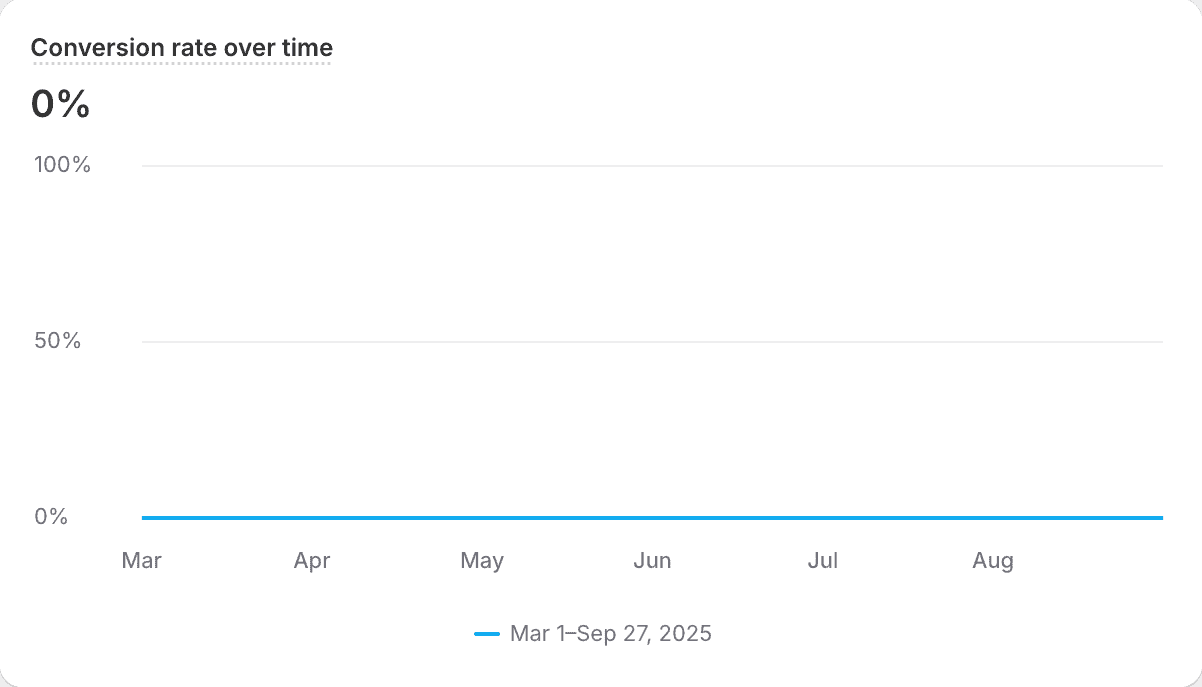
# Whimsical intersections
I was out on a walk through the city historical center one day, and there was a craft market that day in the square. There's always a craft market somewhere in Brașov.
I struck a conversation with a lady that was doing beautifully painted wood clocks and mirror frames, and postal boxes and key hooks... I was amazed by how many things she could do by herself.
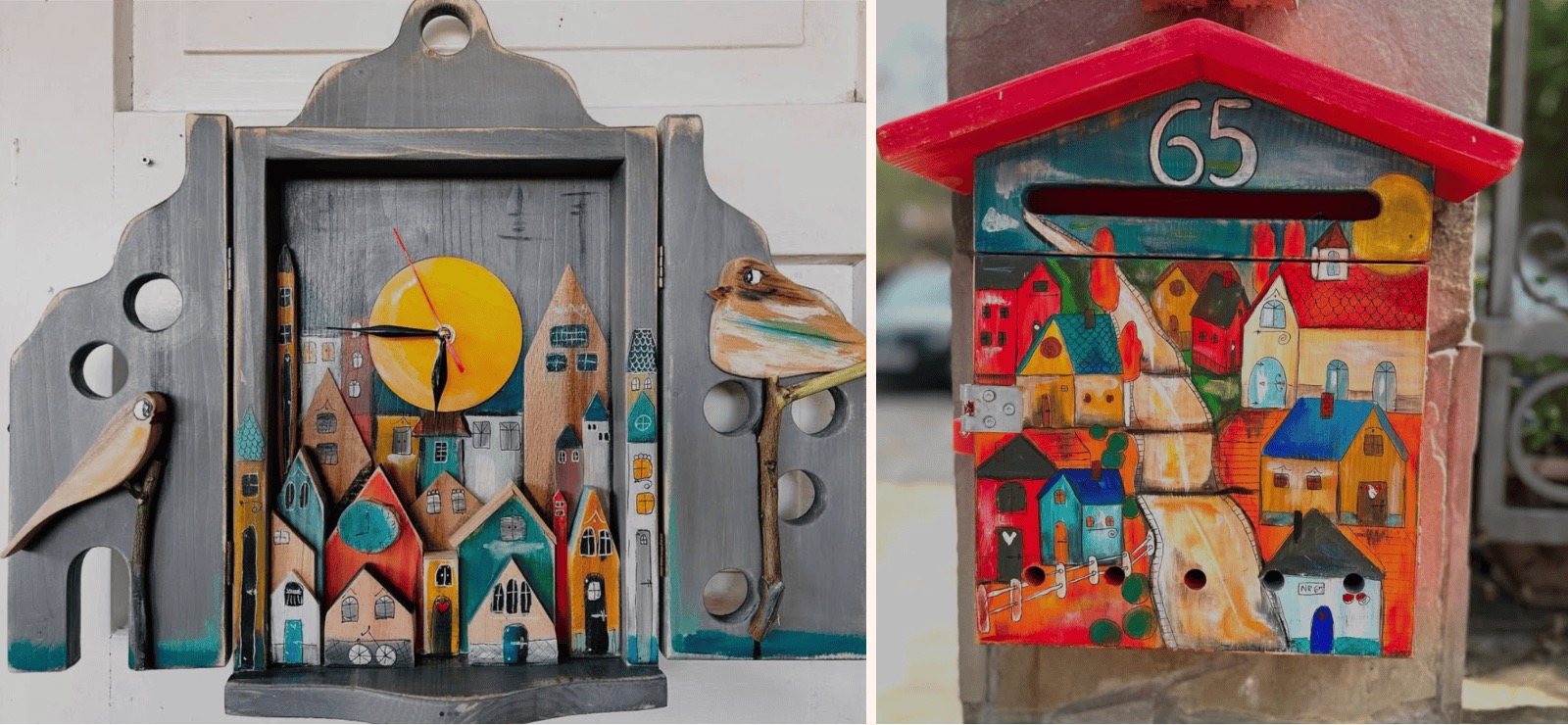
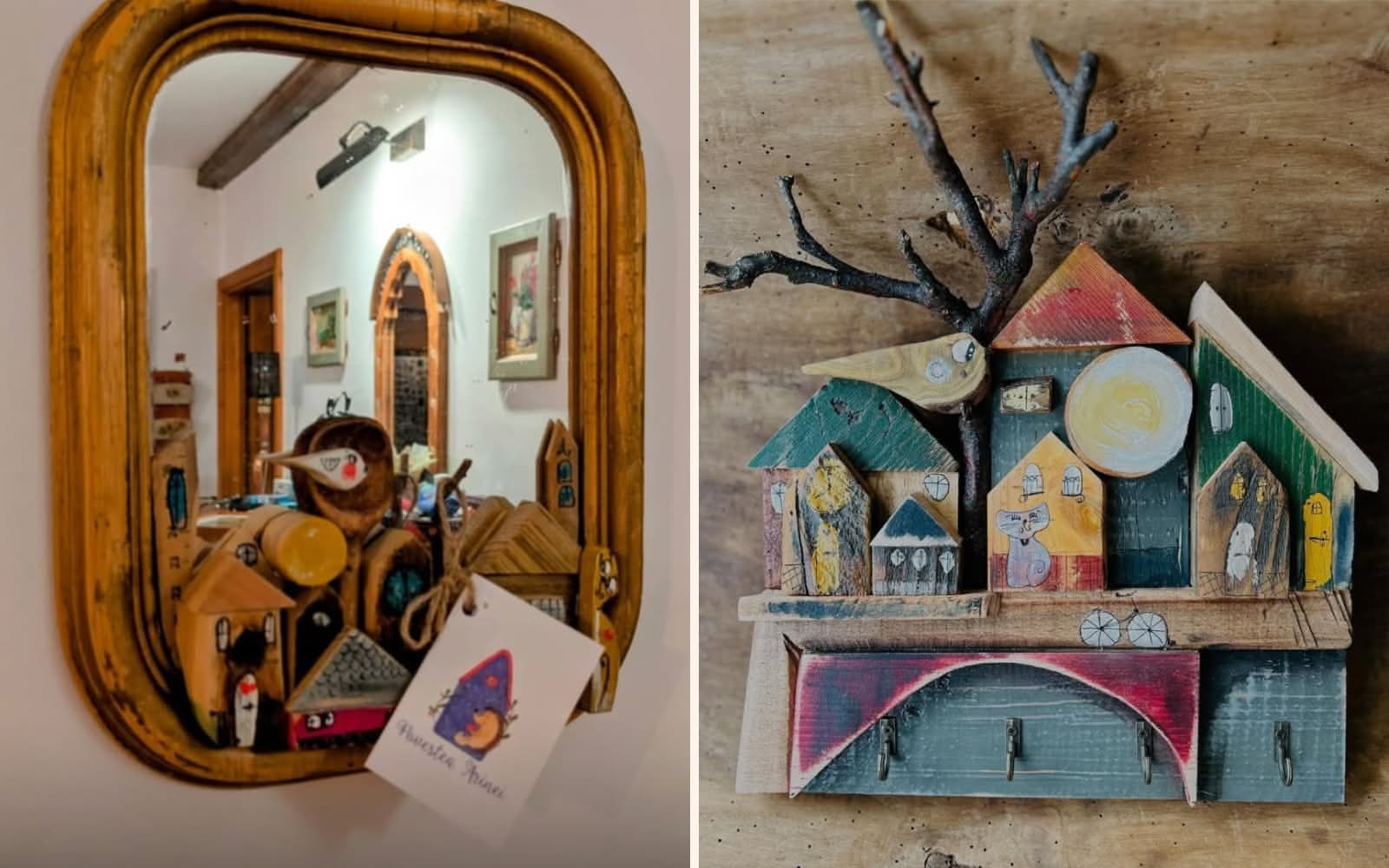
Apparently, she was also working with reclaimed wood like me, and she was living two streets away from me. I was unknowingly walking past her house almost every day on my dog's morning walks.
I told her about what I make and how I'm struggling with selling and she so very kindly offered to sell some of my stuff at her market stand for free. I wouldn't have to go through the hassle of getting a cash register or PoS, she would sell my wood creations as her own and pass me the earnings. Who does that??
It's so rare to see someone so unafraid and trusting nowadays. She helped me a lot, I could finally see if people would really pay for my work, I could hear what they think about it, about the prices, which products cause confusion and which ones bring joy.
Salt shakers and sharpening blocks caused a lot of confusion by the way.
They thought salt would cling to the wood, when in fact it does the opposite. The wood absorbs excess moisture so the salt never clumps.
And the sharpening blocks would be seen as luxury for people that use expensive knives. People usually spend €2-3 on a knife around here and view them as expendable.
I was dumbfounded to hear that the wooden spoons sold first every time, no matter the price.
Coffee cups were selling as well, but people bought them more for keeping the spoons inside them! I was putting in so much time in making these waterproof and people used them as spoon holders...
That was eye-opening to say the least.
You see, I like carving these minimalist spoons out of rarely used woods that I find in orchards, courtyards, the side of the road. Woods like jasmine (yes, the flower), fig tree, lilac wood, wax cherry, black locust, quince wood.
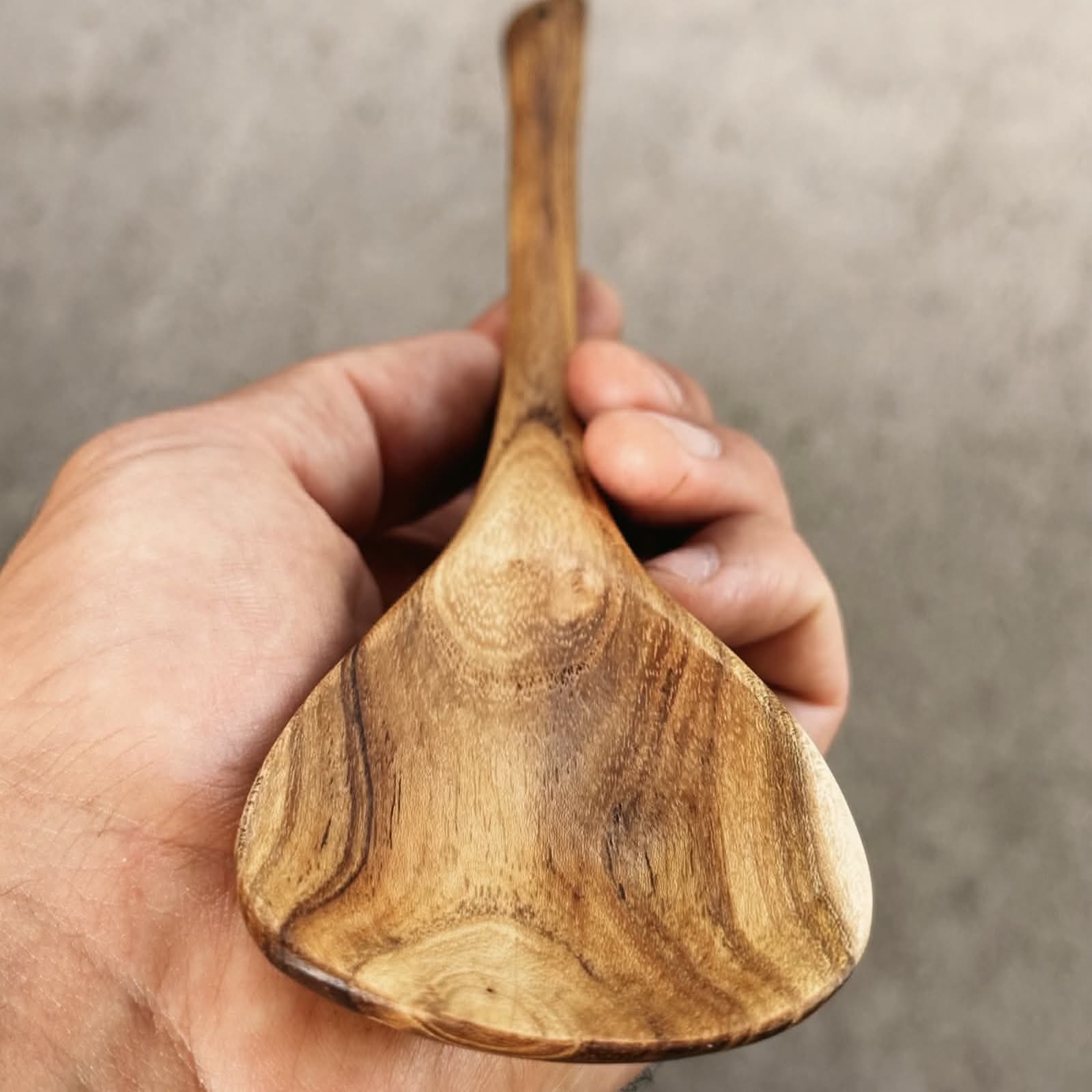
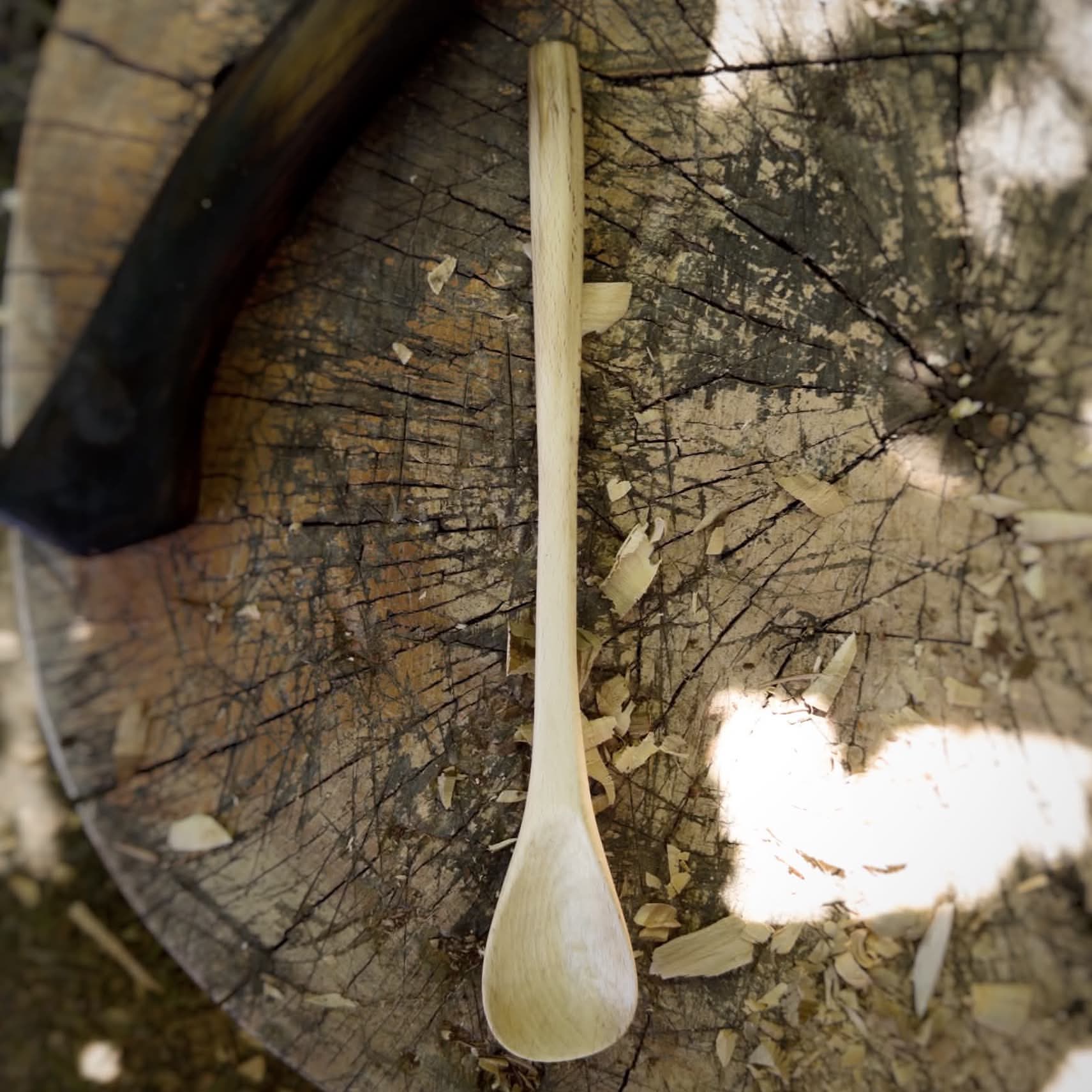
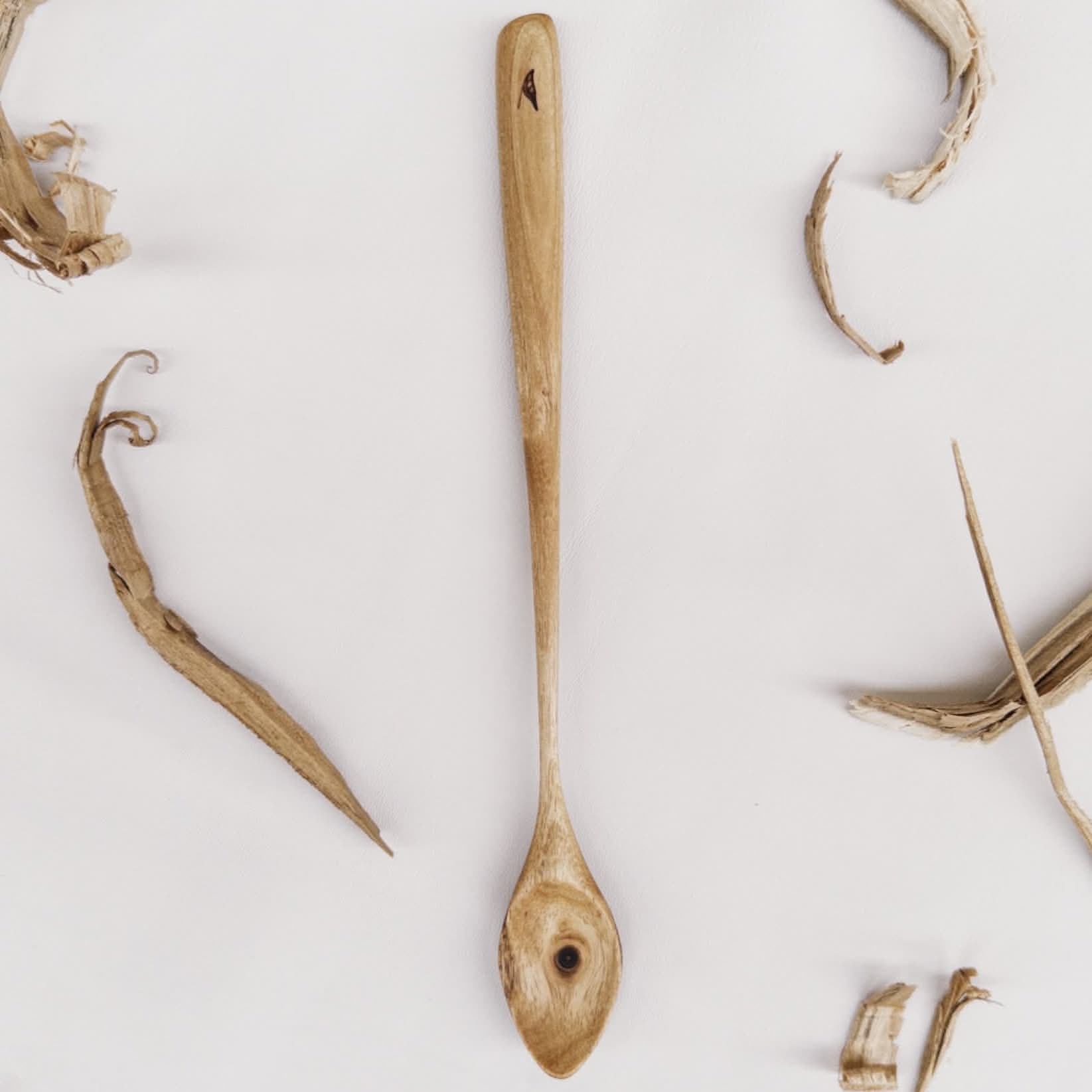
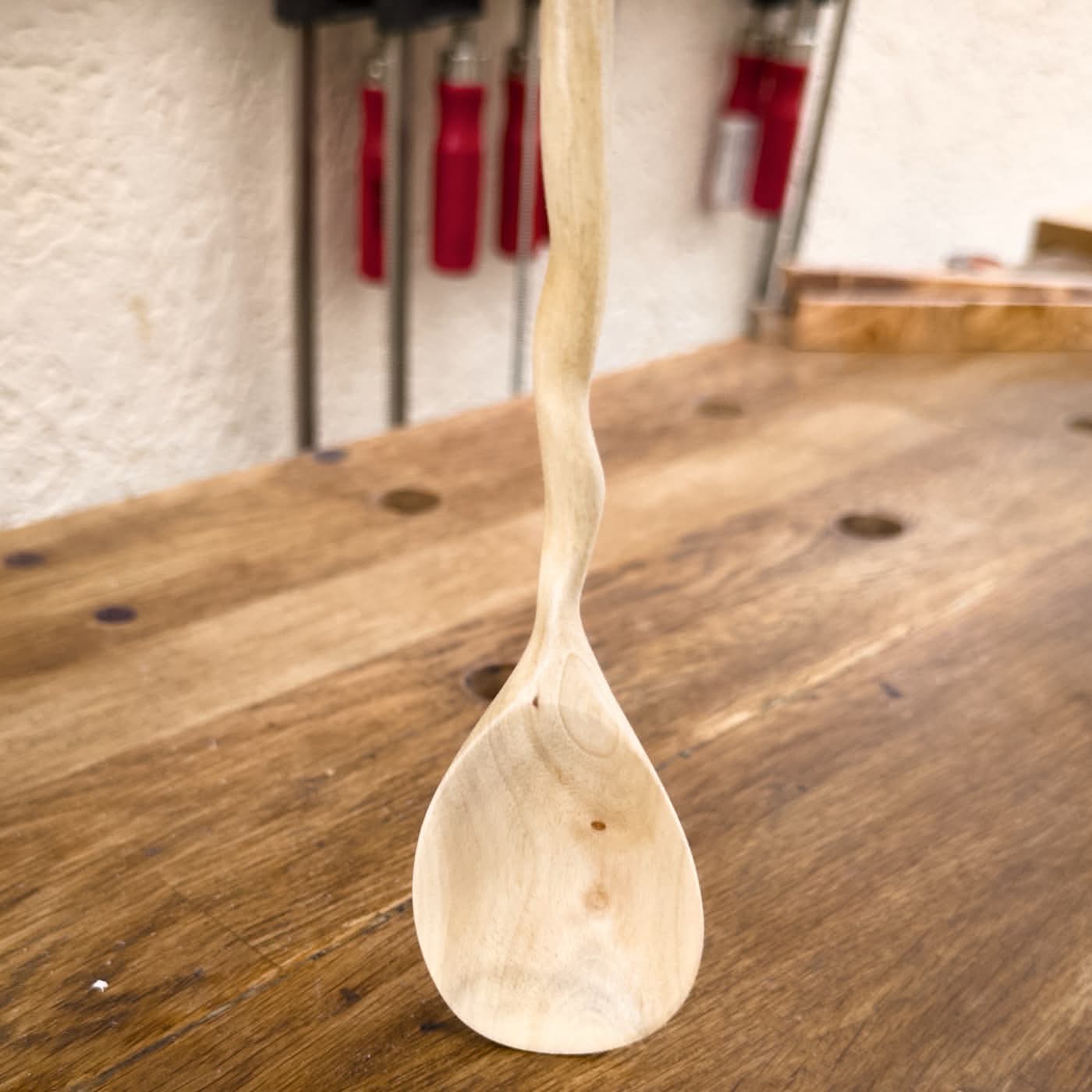
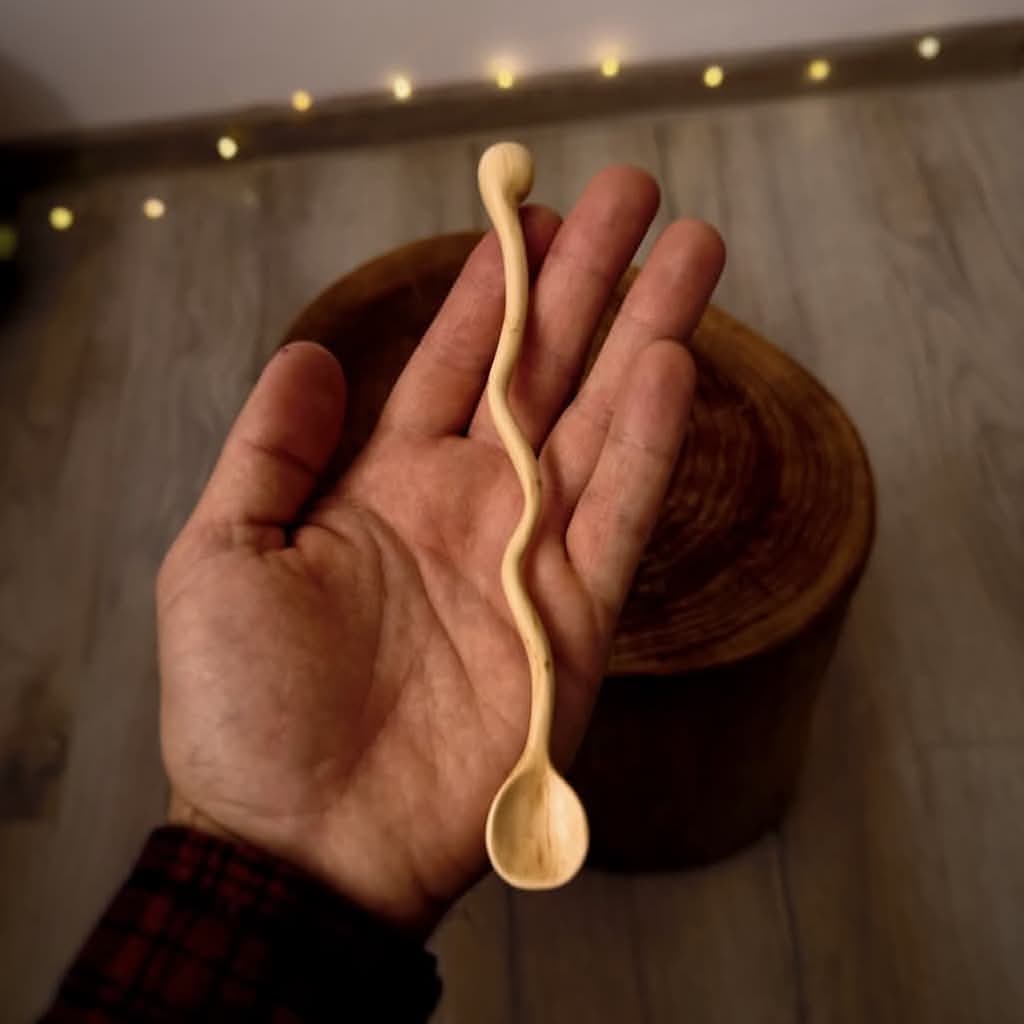
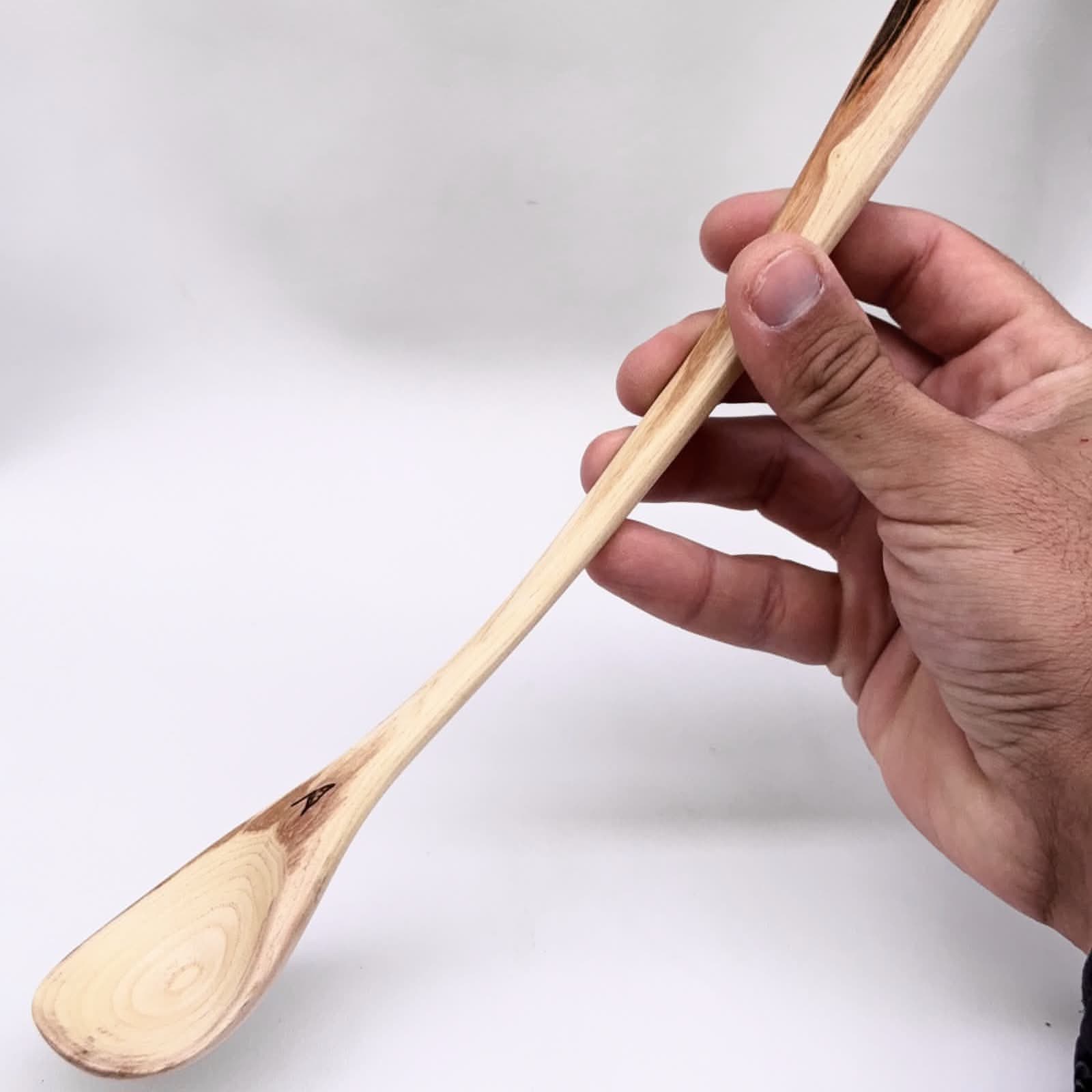
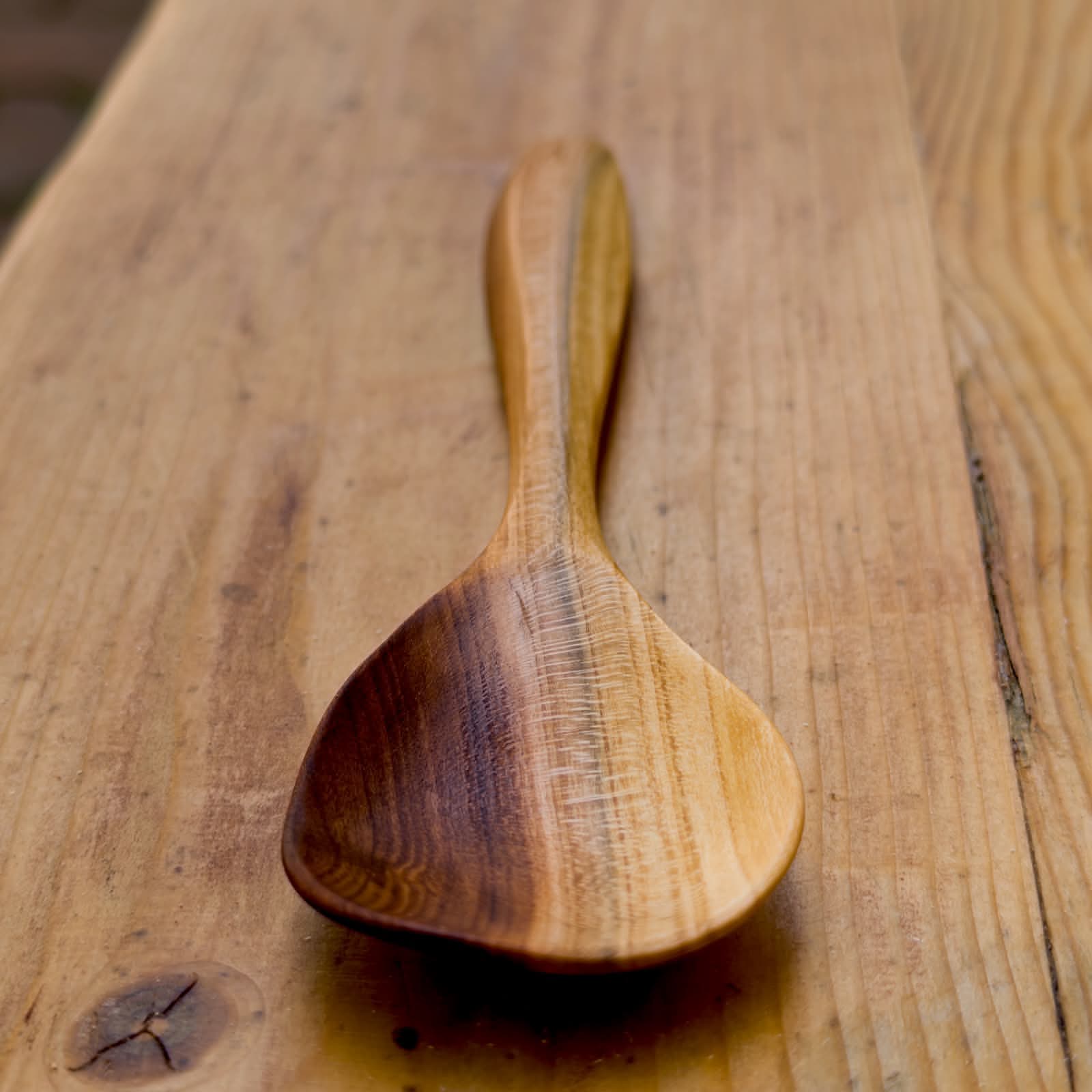
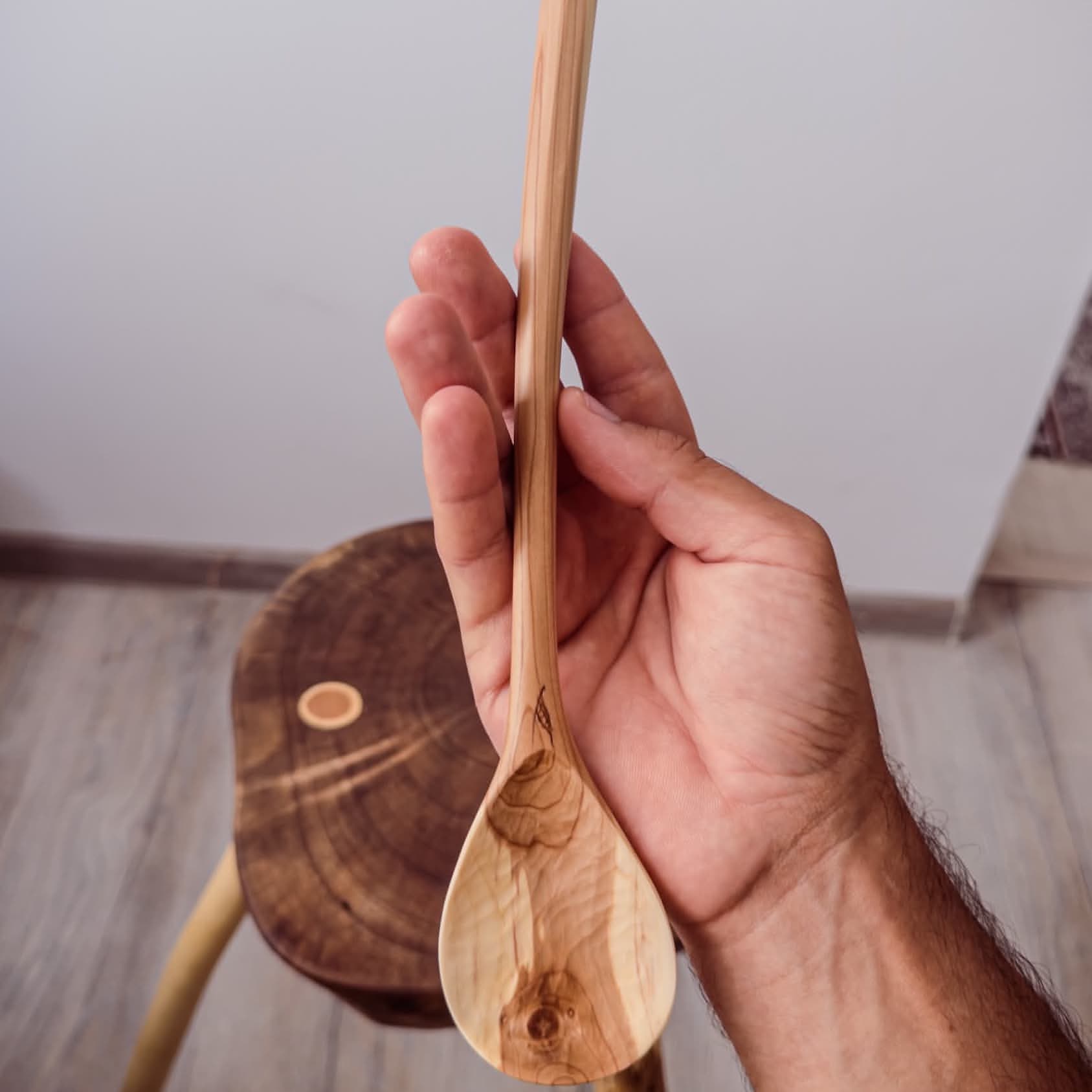
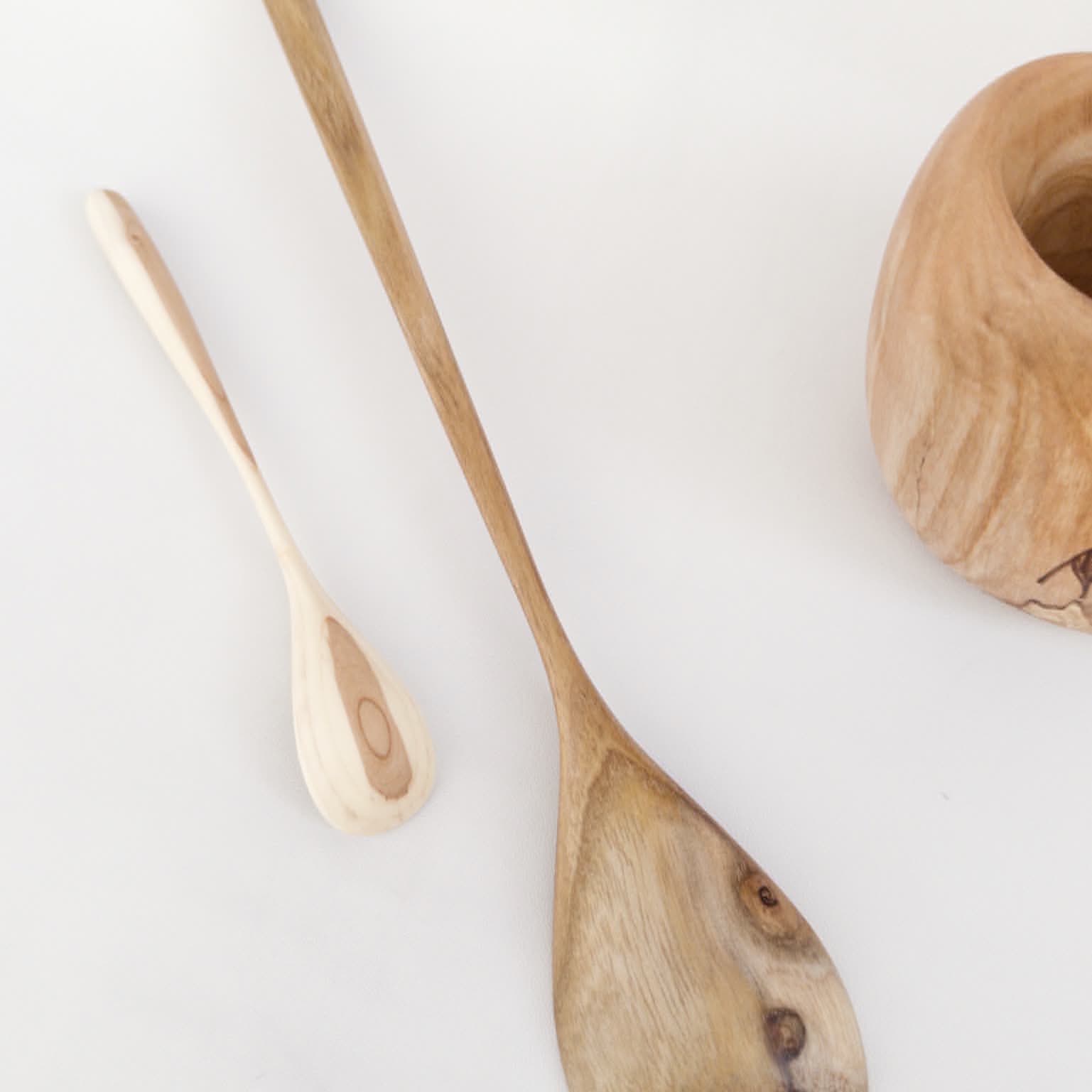
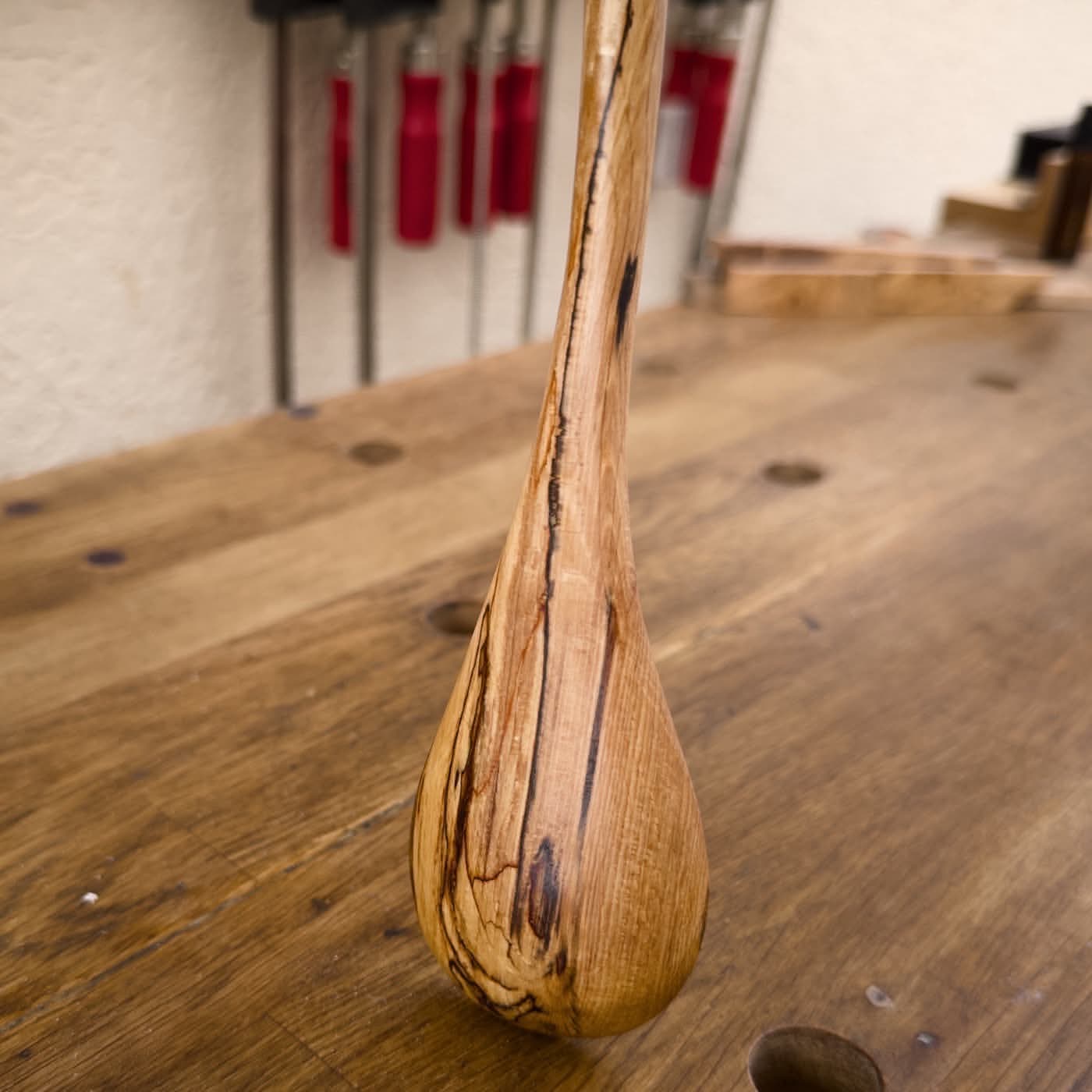
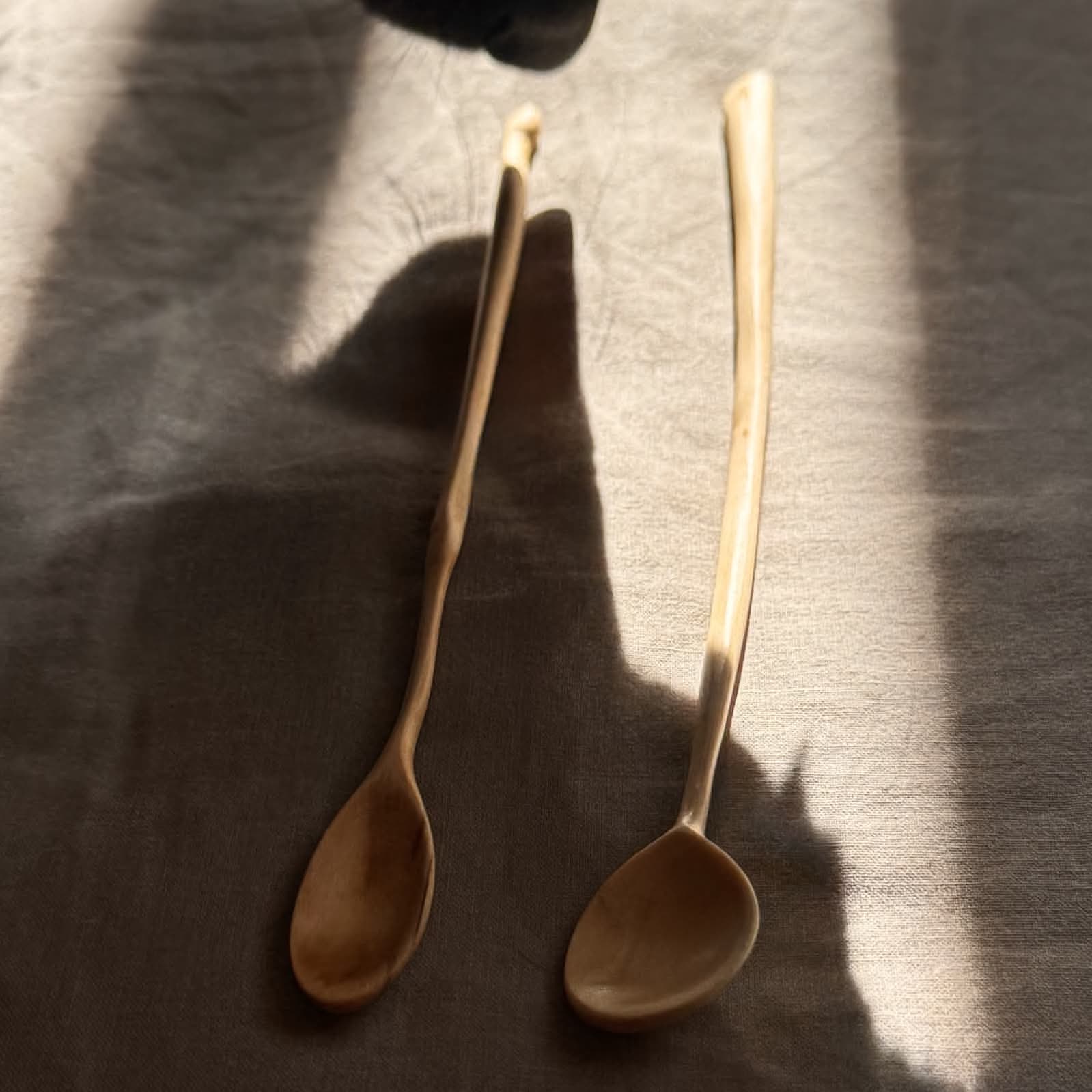
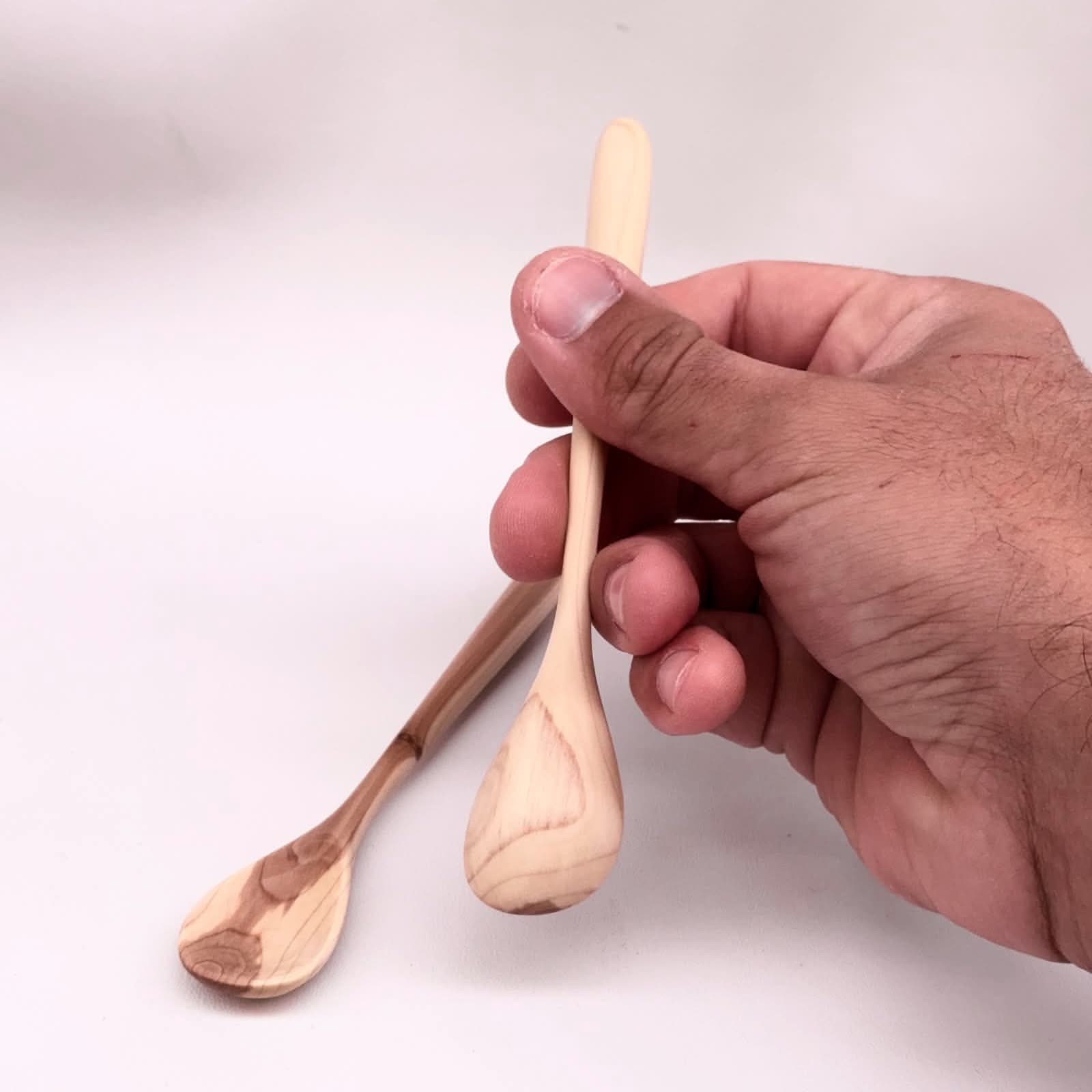
And it turns out people liked the idea of those rarely used woods.
They liked the idea of cooking with a spoon made out of a fig tree branch that grew in someone's yard, that someone took care of, watered, pruned, harvested fruit from it. Or mixing their tea with wood coming from a flowering bush like lilac or jasmine.
# Money and effort
Before I sold my first real product, I had no idea that the people who make the product end up with less than half of the money paid by the buyer. If there's a middleman, the maker could get even less than a quarter.
I was recently invited to sell my wood carvings at a gift shop here in Brașov. These places usually need you to lower your usual prices because they need to add a commission on top.
So let's say I would usually sell a cooking spoon for €20, I would have to lower that to €15 there. The gift shop doubles that because they also have to pay rent, employers, taxes. So the buyer sees the €30 final price.
A rough calculation leads to:
€30 (paid by the buyer)
- €15 (shop commission)
- 21% (VAT)
- 16% (income tax)
- 16% (dividend tax)
= €8.36 (maker earnings)
I get only 8 euros for the effort of hand carving, hand sanding, burnishing, oiling and waterproofing a large cooking spoon. Not to mention the preliminary efforts of finding the salvageable wood in the first place, selecting the good parts of the tree branch, fixing small cracks, axing out the excess and preparing the blank.
All that while the person that values my work and actually buys the spoon, pays 4x the price.
Of course, I'm happy to finally sell something at all, and get some much needed exposure, I'm not complaining about the gift shop.
I'm more like the old man shouting at the sky that the taxes are too high or something. Doesn't seem fair to me.
# The real world is messy
As software engineers we don’t value enough how little we need to do our job. We buy a laptop, download our tools (a lot of times even for free), upload our work across the world, copy it unlimited times...
When we carry that laptop around, we carry the whole workshop with us, with all the tools, finished and unfinished work, space for more work and tools, AI that does the boring stuff for us and seemingly limitless knowledge on any topic.
There's no dust or waste accumulating, no hazardous substances to deal with, cleanup happens at the flick of a button.
It’s not like that in the real world.
In the past year I filled my small rented house, inside and outside with:
- carving knives, axes and all kinds of cutting tools
- bottles of oils and cans of waxes and flammable solvents
- a million types of abrasives and tools to hold those abrasives
- measuring and marking tools
- electric drilling and cutting tools
- workbenches, axe blocks, vises
- mallets, hammers, adzes
- glues, resins, fillers
And it’s a daily challenge keeping all that easily available without having it look like a mess.
At least I'm not making furniture. I can carry an axe, a folding saw and a hook knife if I want to carve a spoon in the forest or in my parents' orchard, but for anything else, I’m mostly stuck to my workbench.
When someone buys an app from me, I'm not even aware of it when it happens. The person gets the app on the other side of the world, I get the money, next person in line can do the same without me lifting a finger.
If someone buys a wooden coffee cup from me, I have to find ways to physically move it to the place where that person lives, I have to pay for that moving of goods, I have to package the cup to make it resilient to being thrown around in a van.. and then that's it, it's gone for good. If someone else wants another cup, I have to put in the effort to make another one.
# Pricing physical goods
When that lady was helping me sell at her market stand, I had to create a lot of spoons and cups in a short amount of time. I had to do the same thing for the gift shop opening day. People like to see a stocked shelf when buying.
When people see just a handful of products on a shelf, they seem to think it's only for admiring.
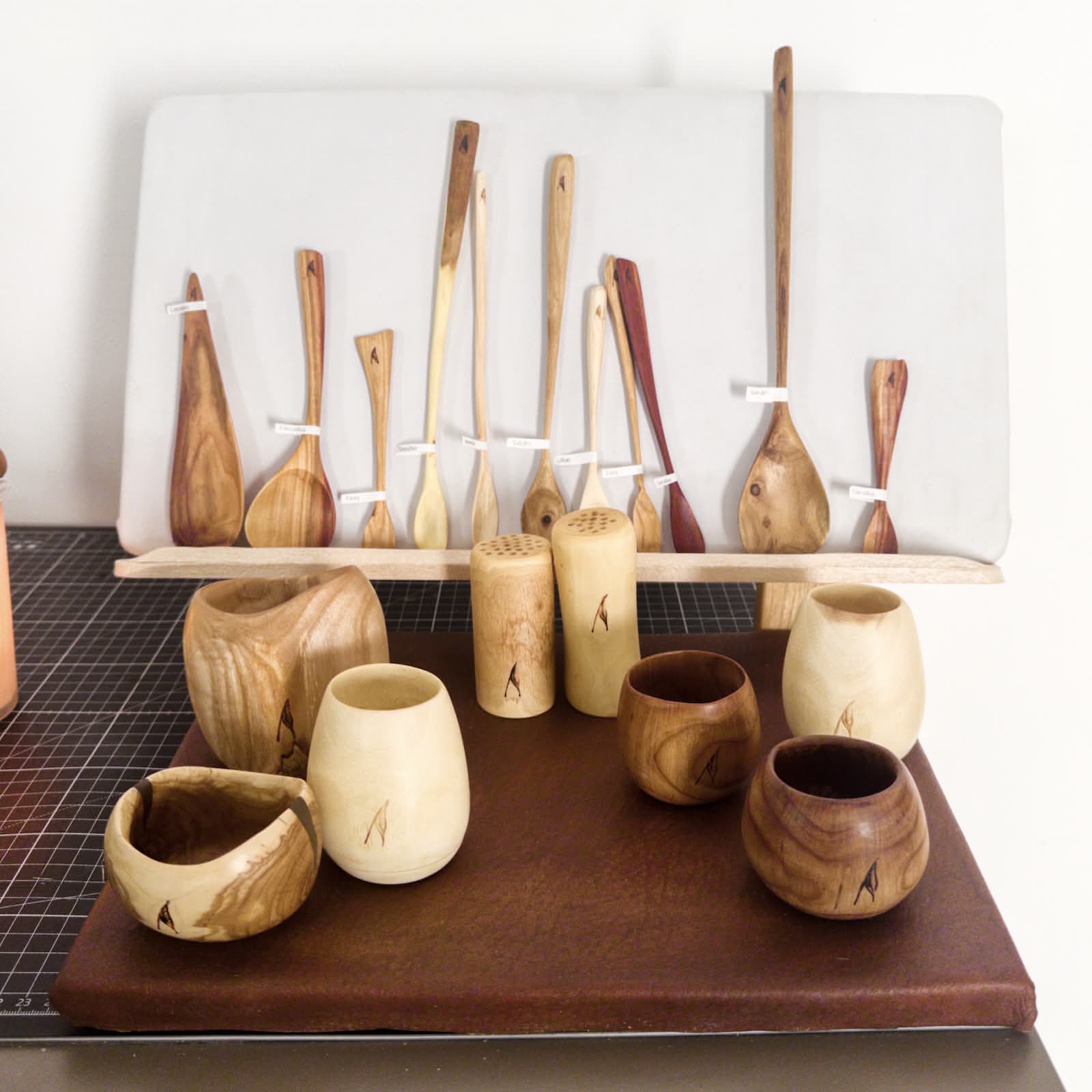
So for a few days, I had to enter "production mode" as I like to call it. Which means I was trying to get as many finished products in a day. I tried to carve 10 spoons in a day, or 4 coffee cups, from early morning until the last ray of sun disappeared behind the horizon.
I managed to do it, but there's a physical limit to how much effort I can put in before my hand muscles refuse to move the next day, before the painful cramps in my arms stop me from lifting even a light grocery bag.
And there's a limit to how creative my designs can be in such a short amount of time. The spoon or cup looks a specific way because the tree branch and its wood grain moves in specific directions. I can't use templates and do the same design if I have to fight the grain direction.
And that brings me to pricing.
I remember walking through the Vienna Christmas markets about 7 years ago, and I saw people selling little pebbles for €5 a piece!
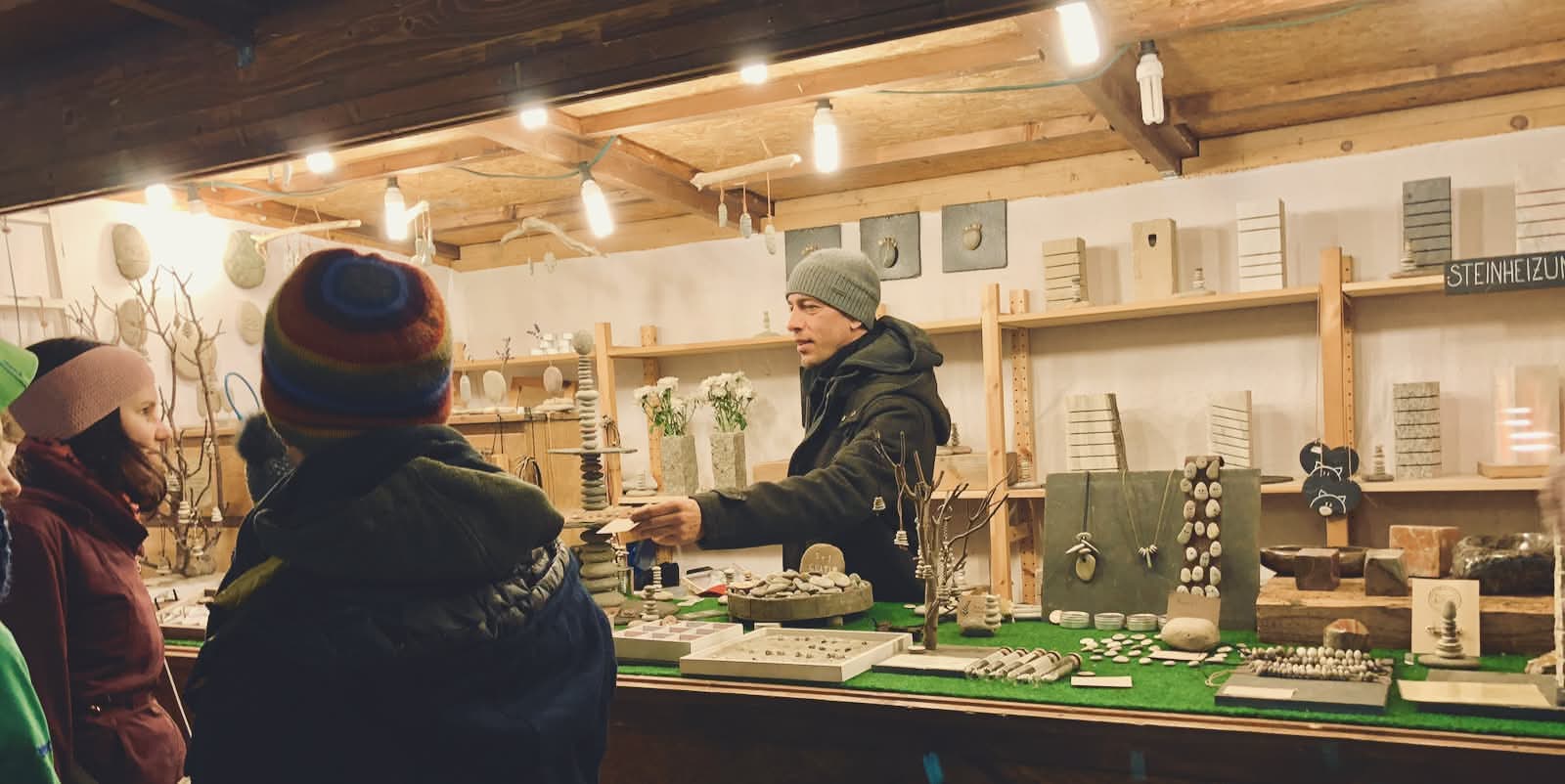
What I remember the most actually, is a lady that was making huge crazy grained olive wood bowls, and was selling them for eye watering prices, there was nothing below €500 on that stand.
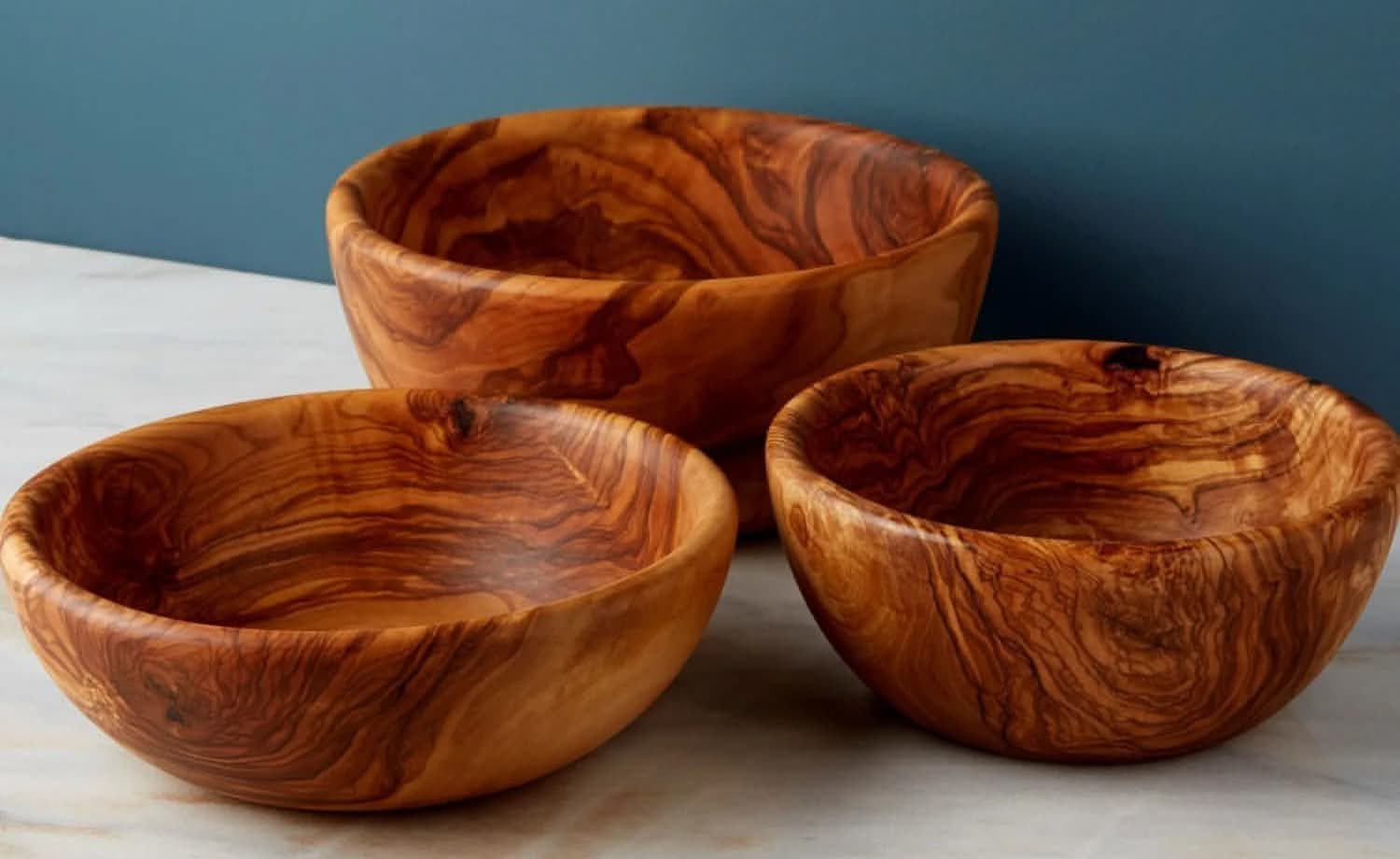
I was almost angry. How could anyone ask for that much money on a wooden bowl? How could anyone afford them anyway?
I understand it now.
That physical limit on how many quality goods you can create is what should decide your price, not how much people want to pay for it. If there really is no one that will pay that much, then it's not a sustainable business and you should do something else if money is a problem.
I'm still figuring out my own pricing. €20 might sound a lot for a cooking spoon, but given that I only receive half of that after taxes, and I can only make about 2 or 3 spoons max in a day of work, there's not a lot of money at the end of the month.
In the happiest scenario, I would make:
€20 (spoon price) × 3 (spoons per day) × 21 (days of work in a month)
--------------------------------------------------------------------- = €630 per month
2
(the half that I have to give to my corrupt government)
€630 per month... That's just a bit higher than the minimum wage here in Romania which is €466 after taxes at the moment.
It's not sustainable, but I need to build trust first. People need to know that other people have heard of a maker before accepting higher prices. I have to start at the low end.
And it's not all about money in the end.
I like carving useful wooden things, and I want to meet people that like them as well. I want to teach people to carve their own coffee cup and see it develop into the grounding piece of their morning ritual. I want to meet and be taught by other more experienced artists.
I want to connect to people. Get back that feeling that there's always someone I can call up for a coffee at my place, or be called to help someone fell a dead tree and see that tree transform into spoons and cups and butter knives filling the cupboards of home cooks and coffee lovers.
I used to feel I was robbed of that feeling when I started working in the lonely world of online work. But the thing is, I make a lot of money from that. Am I selling my need for connection for those large amounts of money? It certainly feels that way.
If someone told me 9 years ago, when I was just finishing college and hopeful: I'll give you €8000 every month, but you have to spend more time managing a business than seeing your friends, you have to specialize in a field that no friend or family wants to hear you talk about, you have to lose physical contact with them by the age of 28 and you'll slowly develop health issues at 30 because of so much sitting on your butt.
I would have laughed all the way back to the college campus. Who in their right mind would want that?
# Status quo in October 2025
So where am I with this whole carving thing and apps business?
The apps are still making money and I'm still working on them. I am learning to tune out mean comments and focus on features and stability. The wood carving work has created a kind of balance in my life that allows me to keep away burnout from the software engineering work.
The wood carving online shop is still making no money, but I have ideas to grow it in the next year:
- the gift shop will display a QR code with my website alongside my products
- I'll try to translate the website and expand to EU shipping where hopefully my prices won't be seen as too high
- I might try opening an Etsy shop hoping that their search will also guide people to my website
And who knows, in the end, I might actually buy a farm and finally stop renting houses. Build a proper workshop, some shaving horses, spoon mules and axing blocks, and open up the place for people that want to learn how to carve.
# Resources
If you've made it this far, I'm guessing you might be interested in the carvers and artists that inspired me.
Here's a short list:
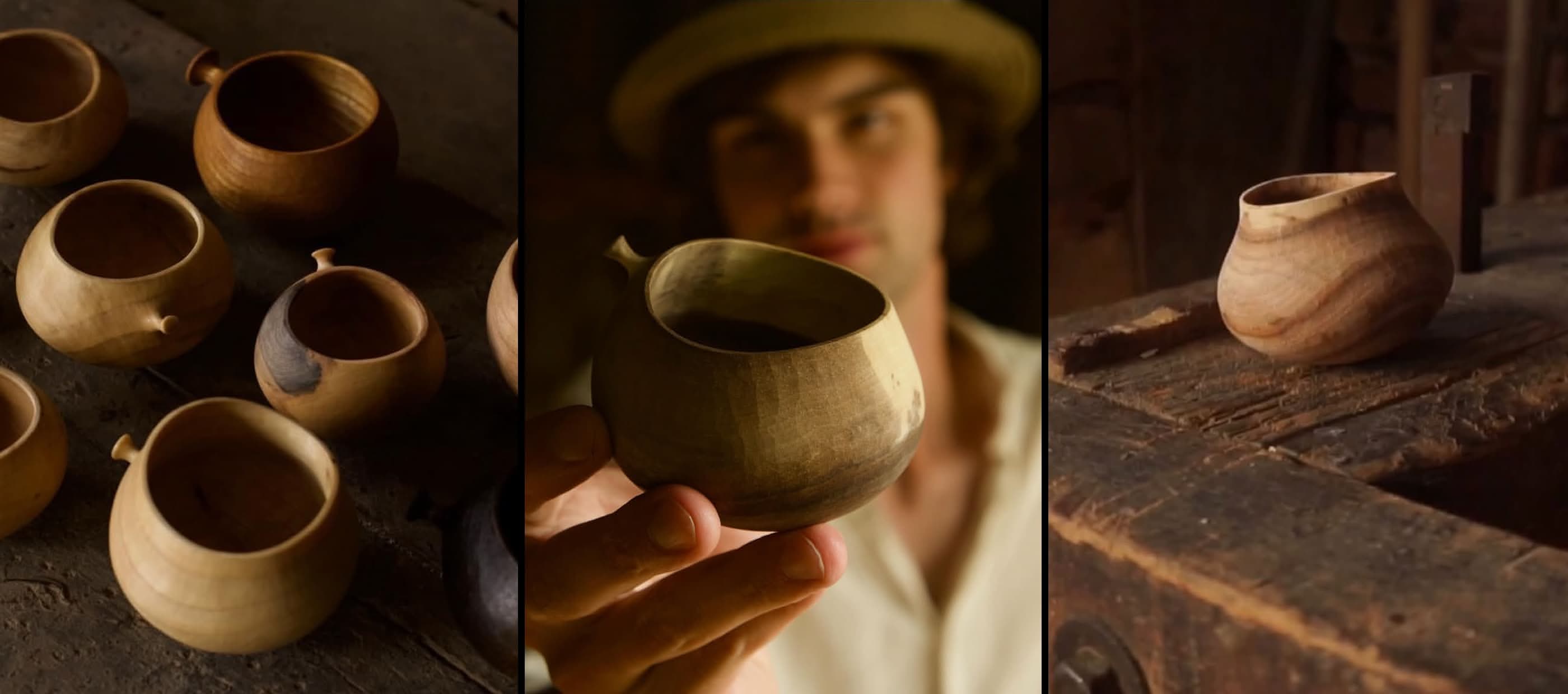
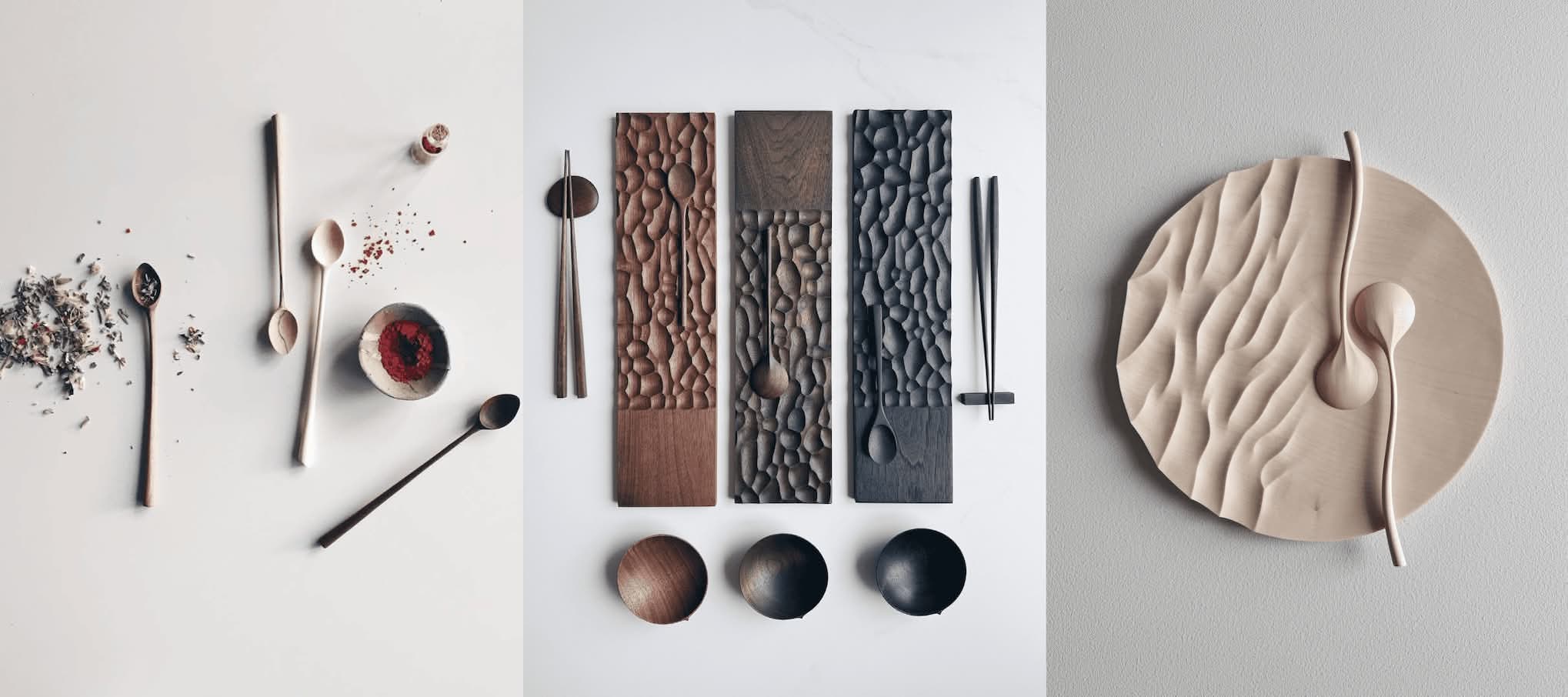
- Oren Hetzroni: teaching people how to carve at his homestead in Israel
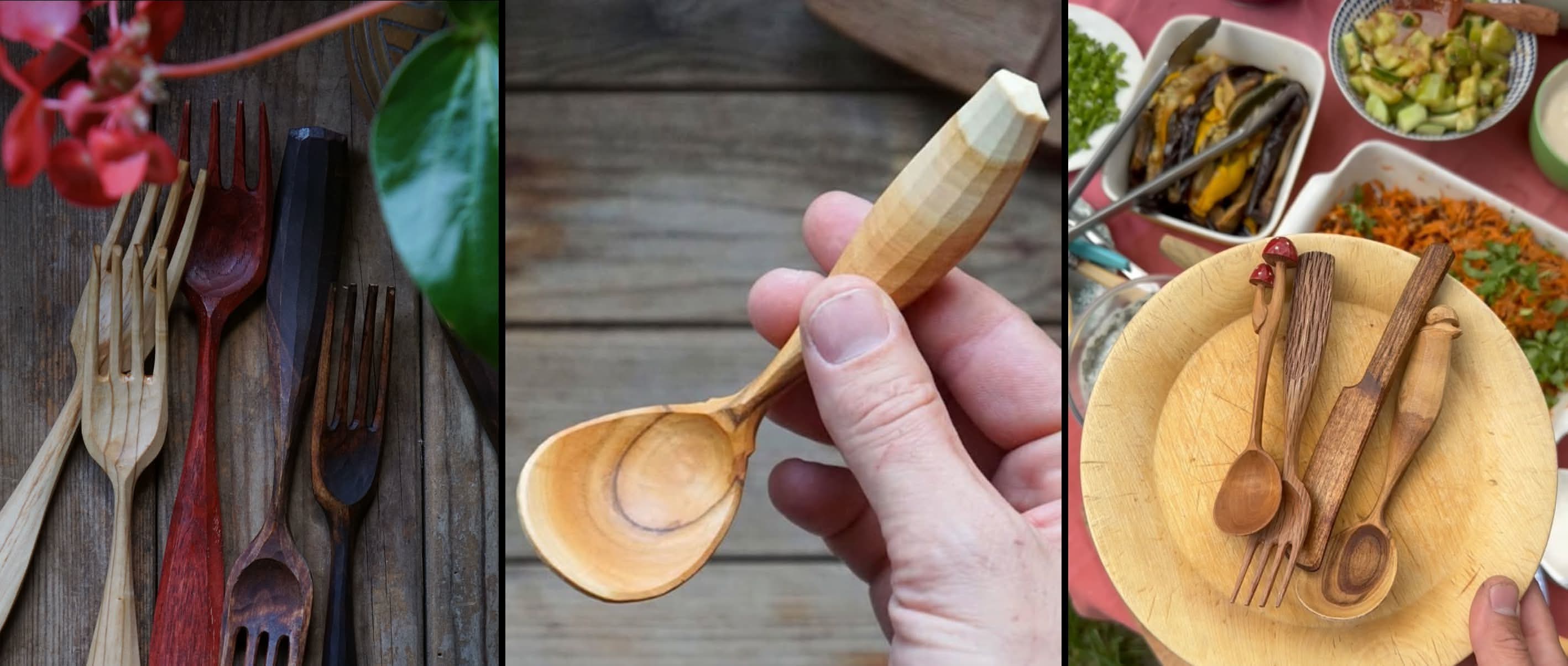
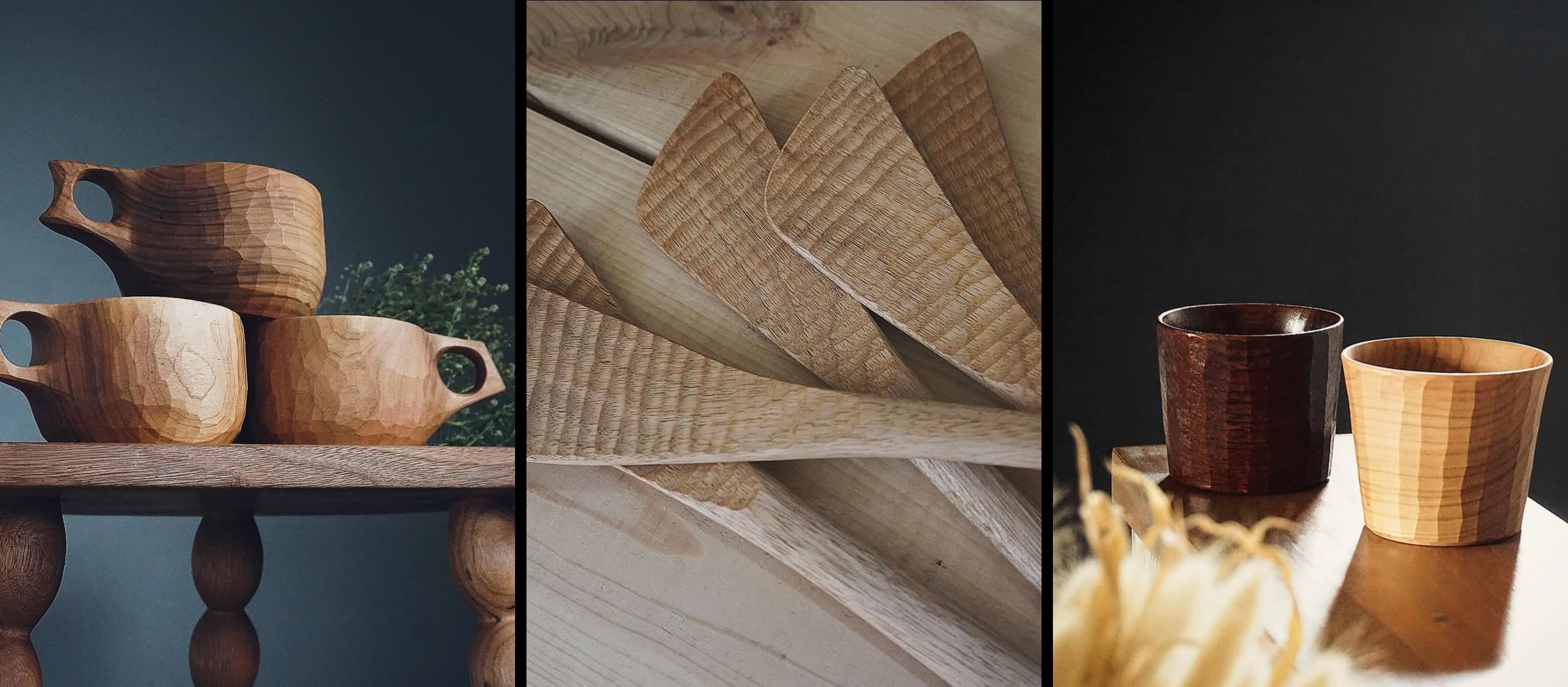
- Benoit Schöni: raw carvings of cups and spoons
